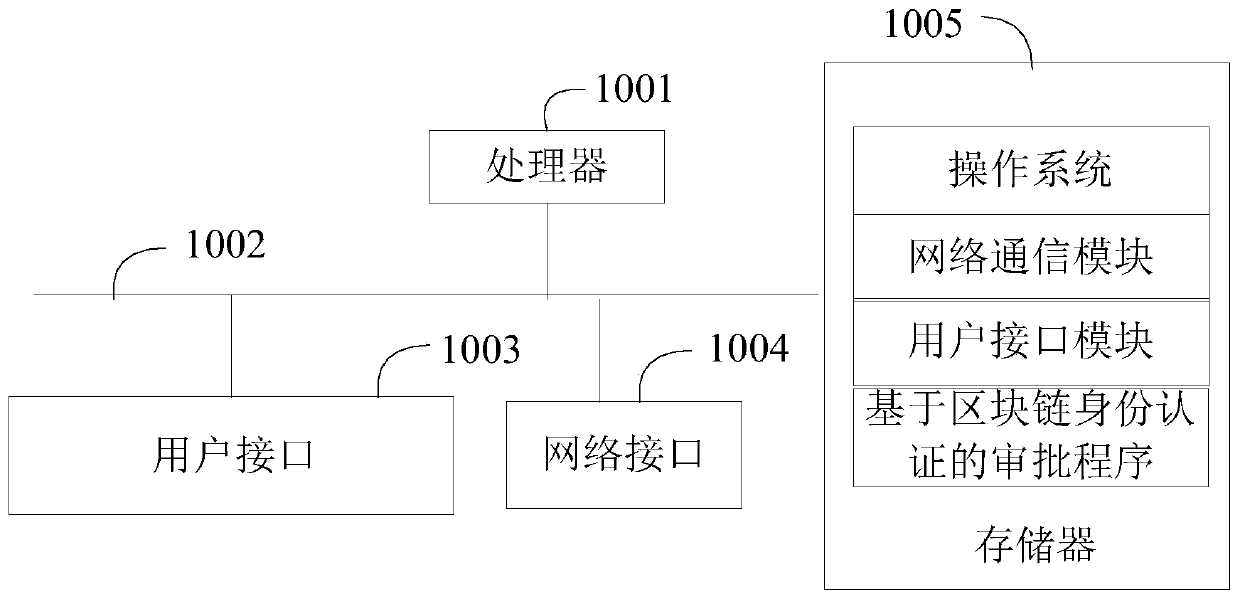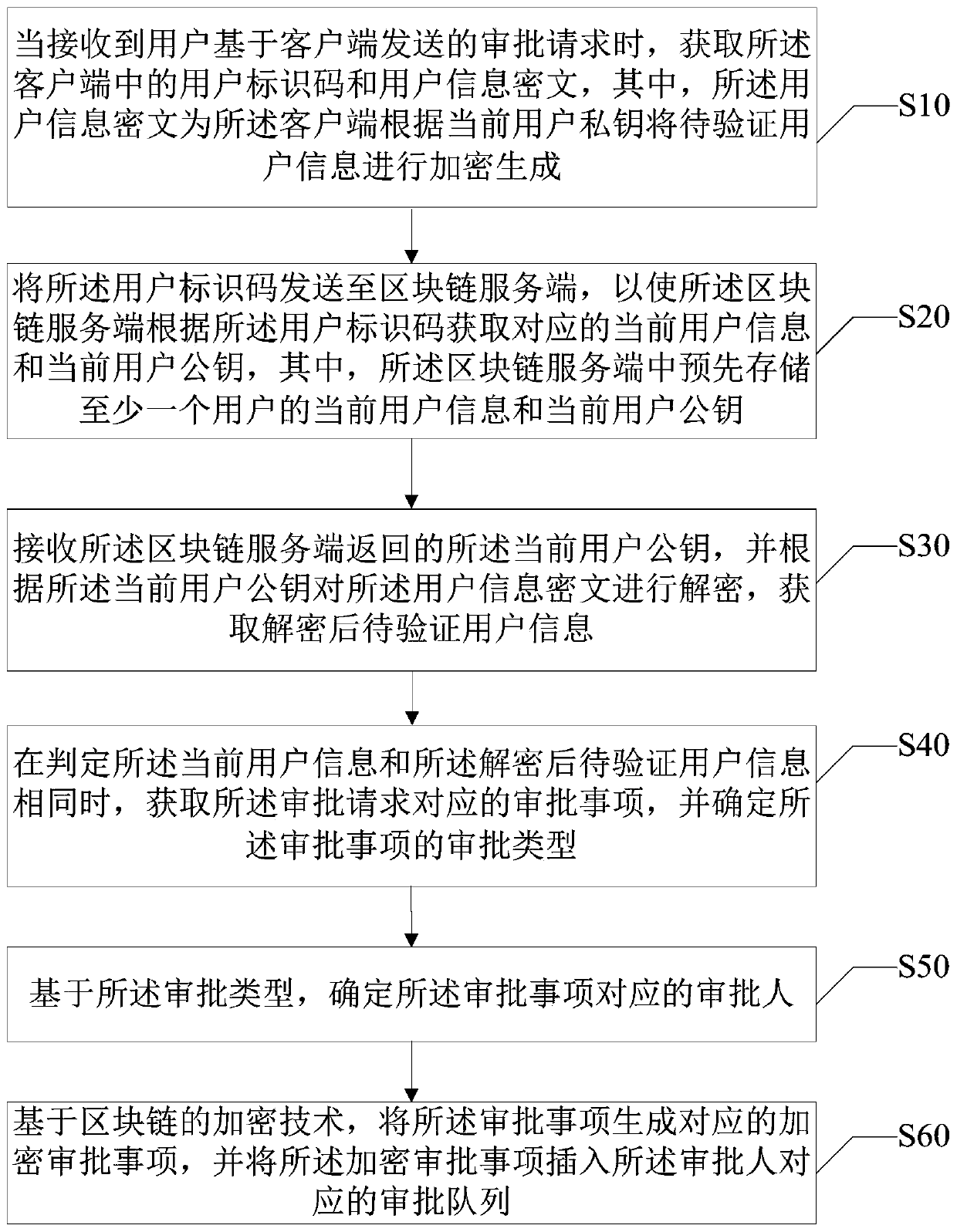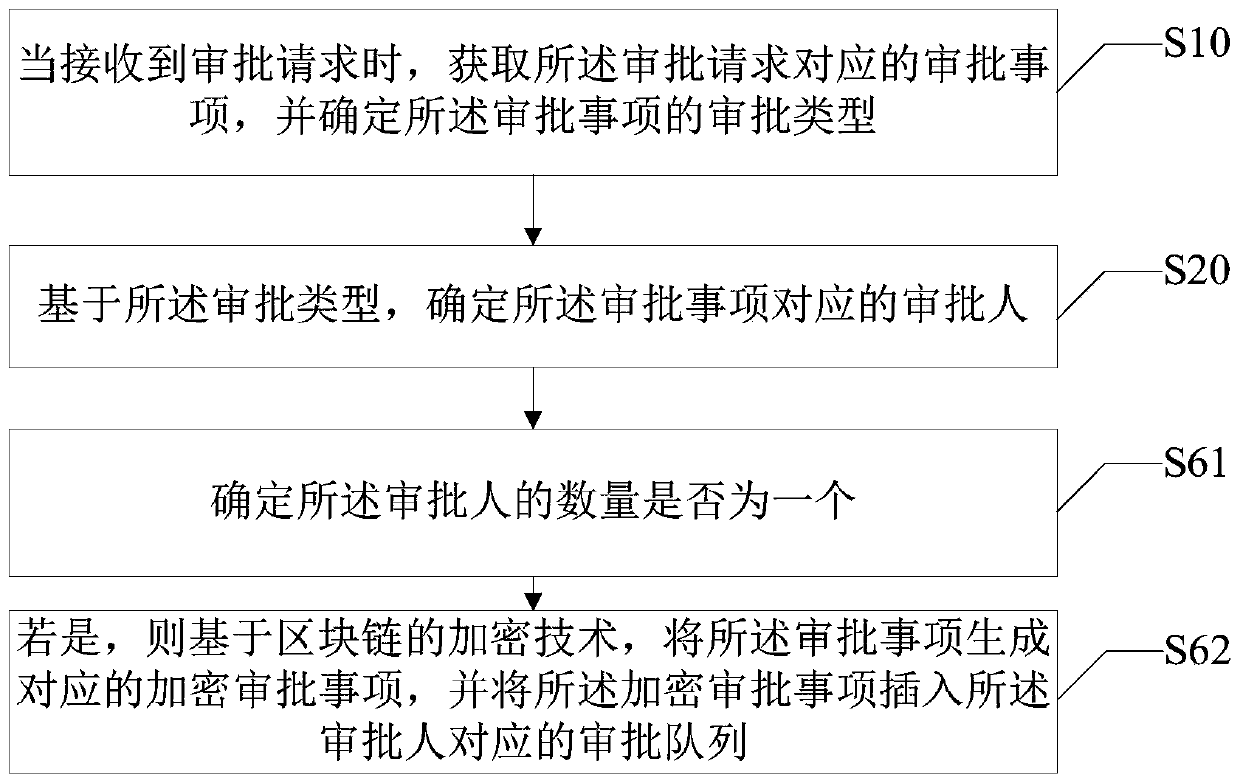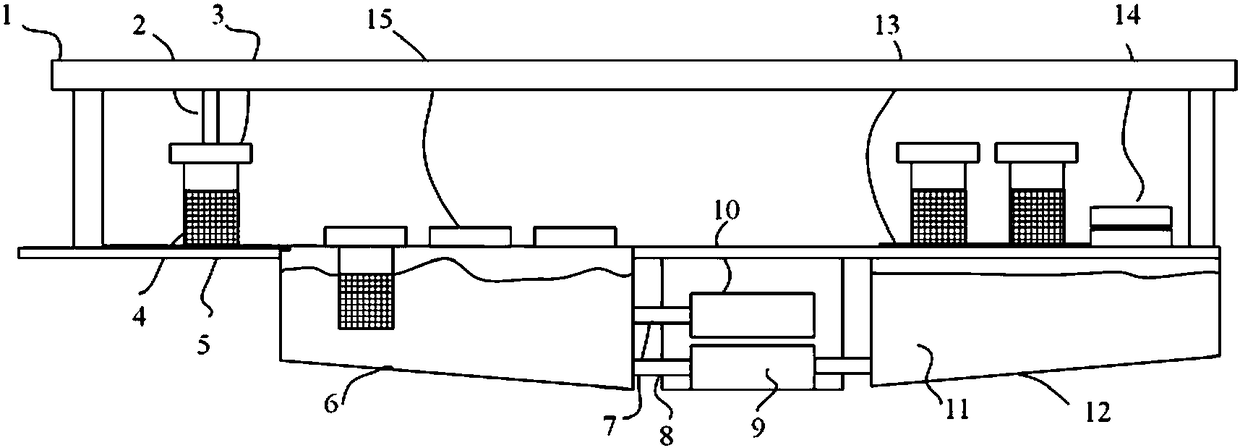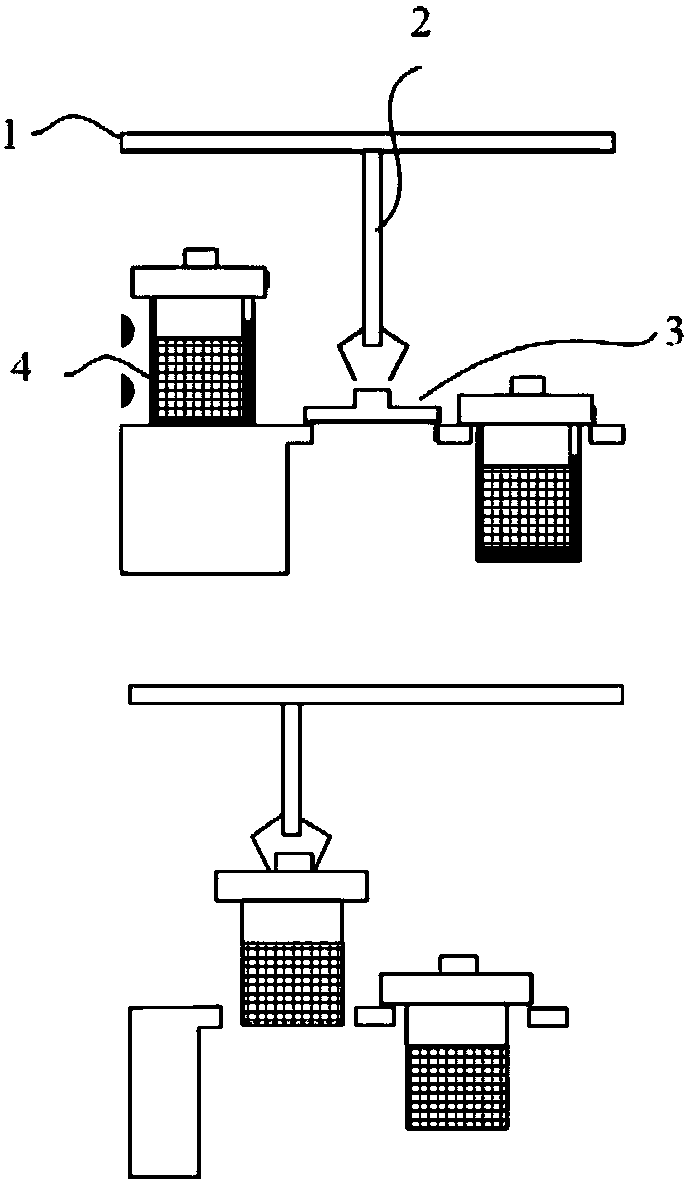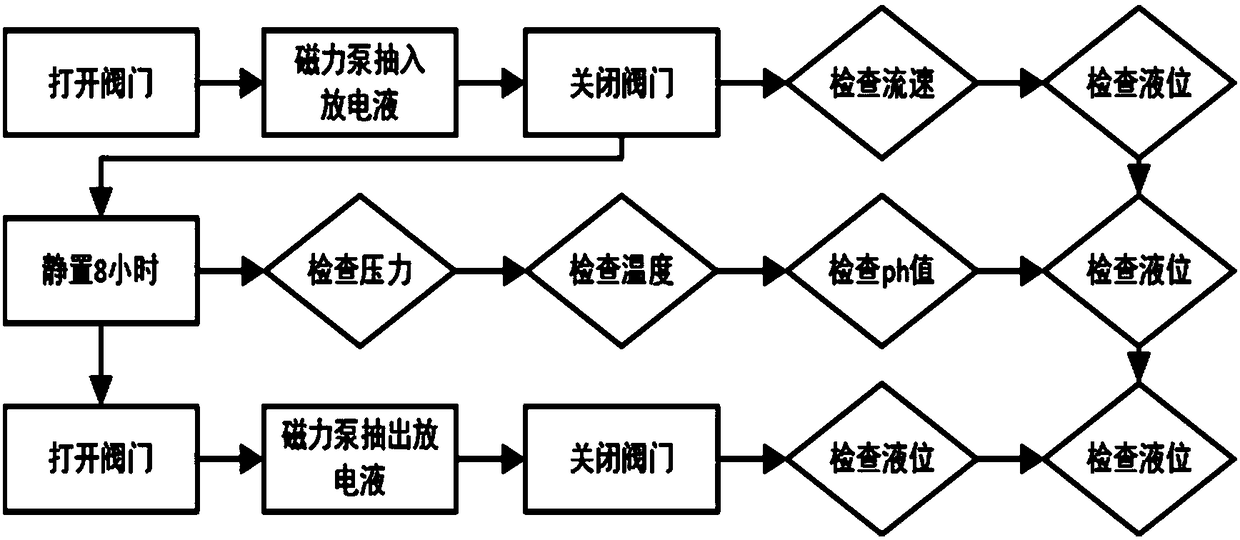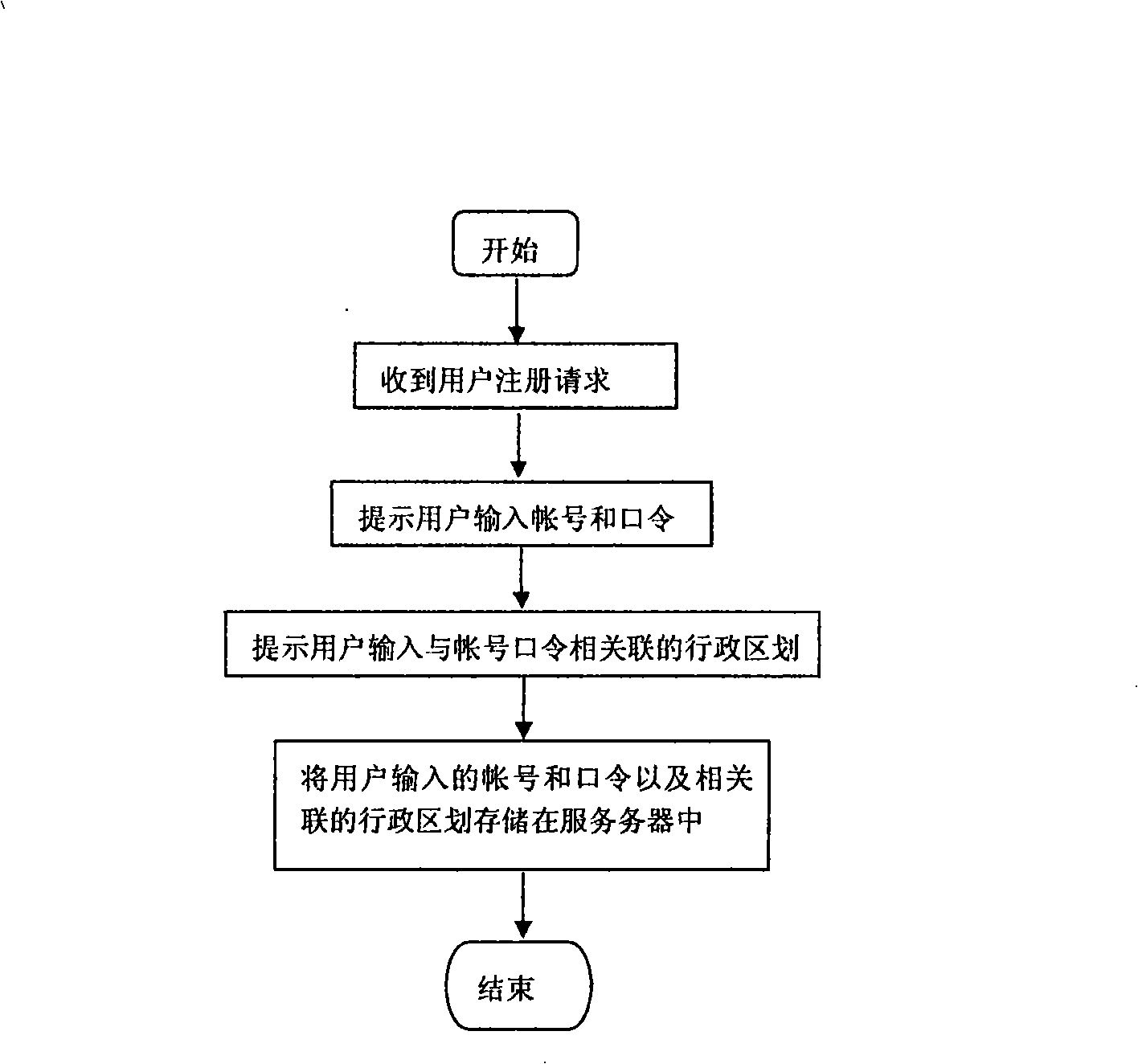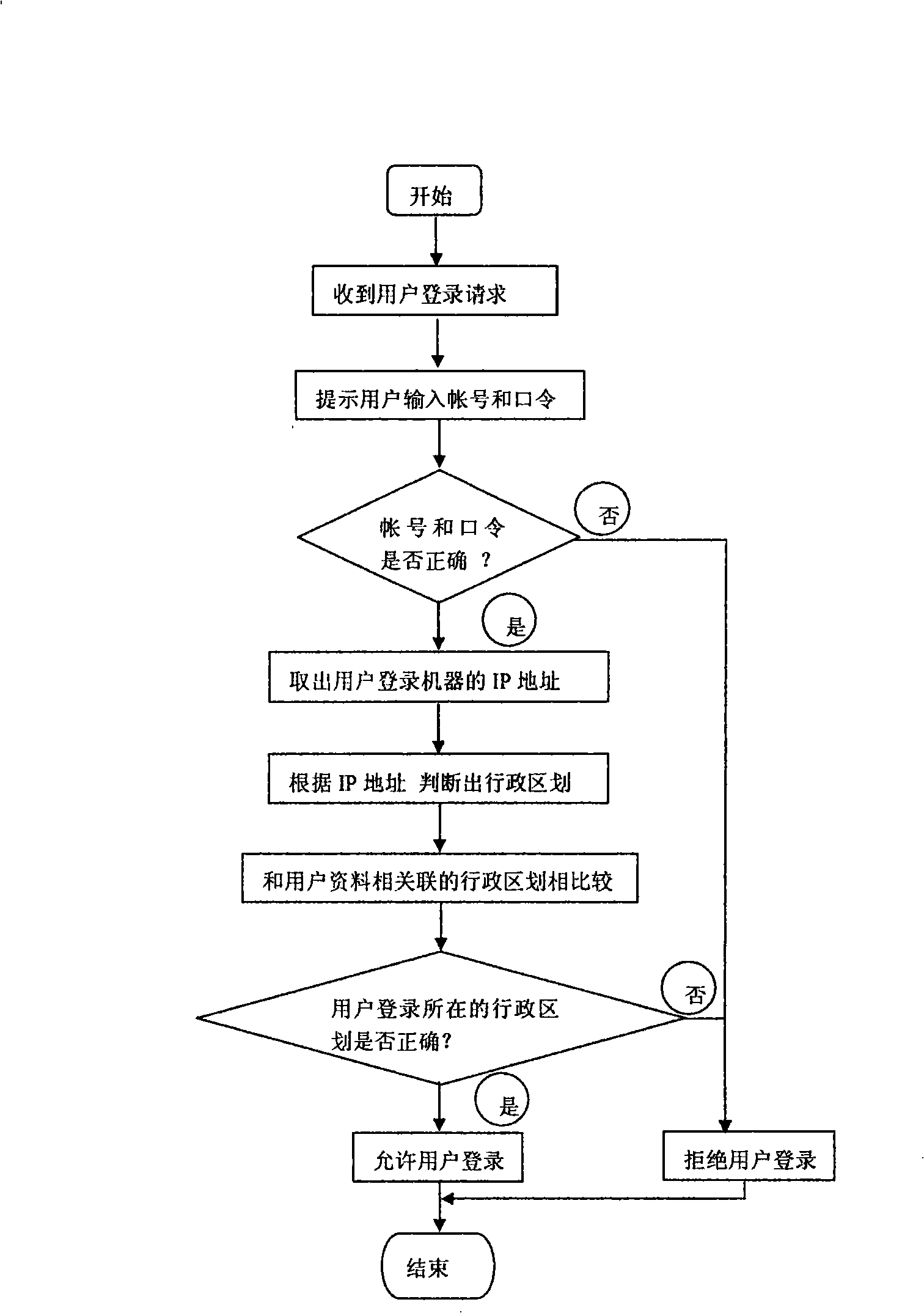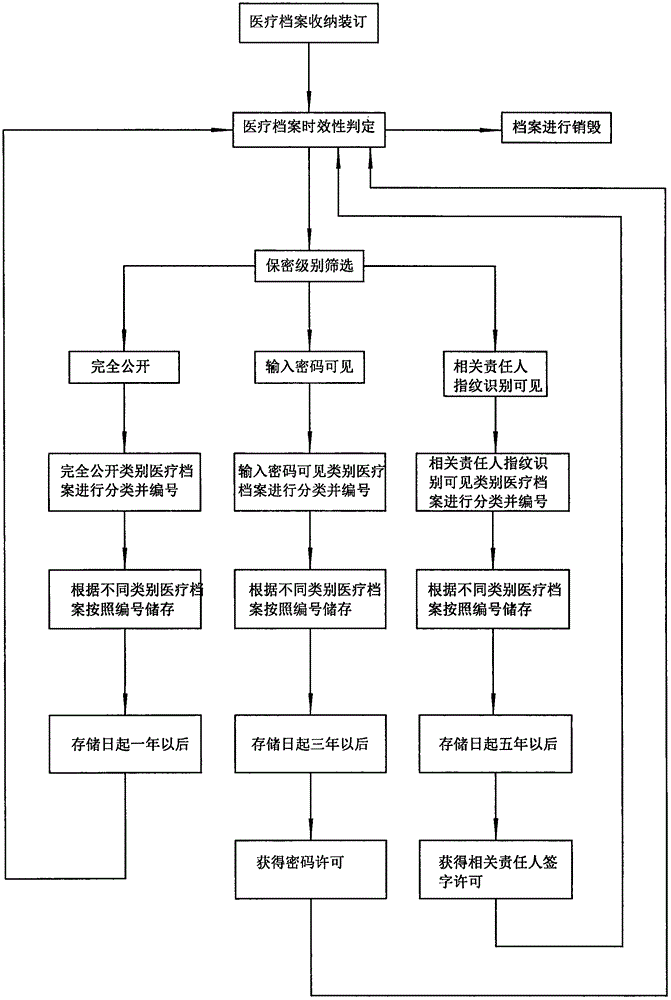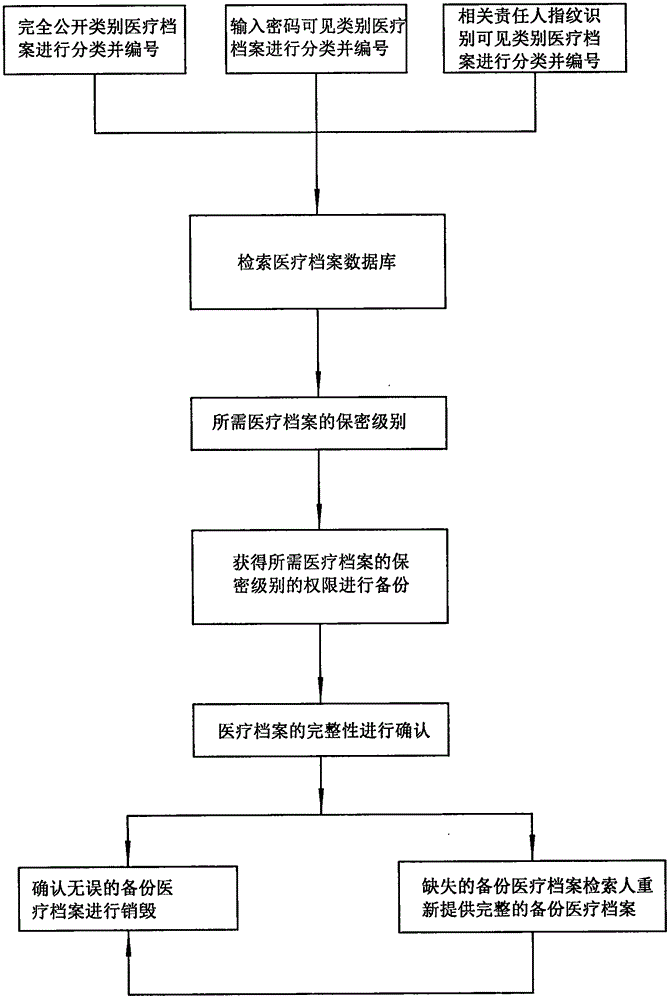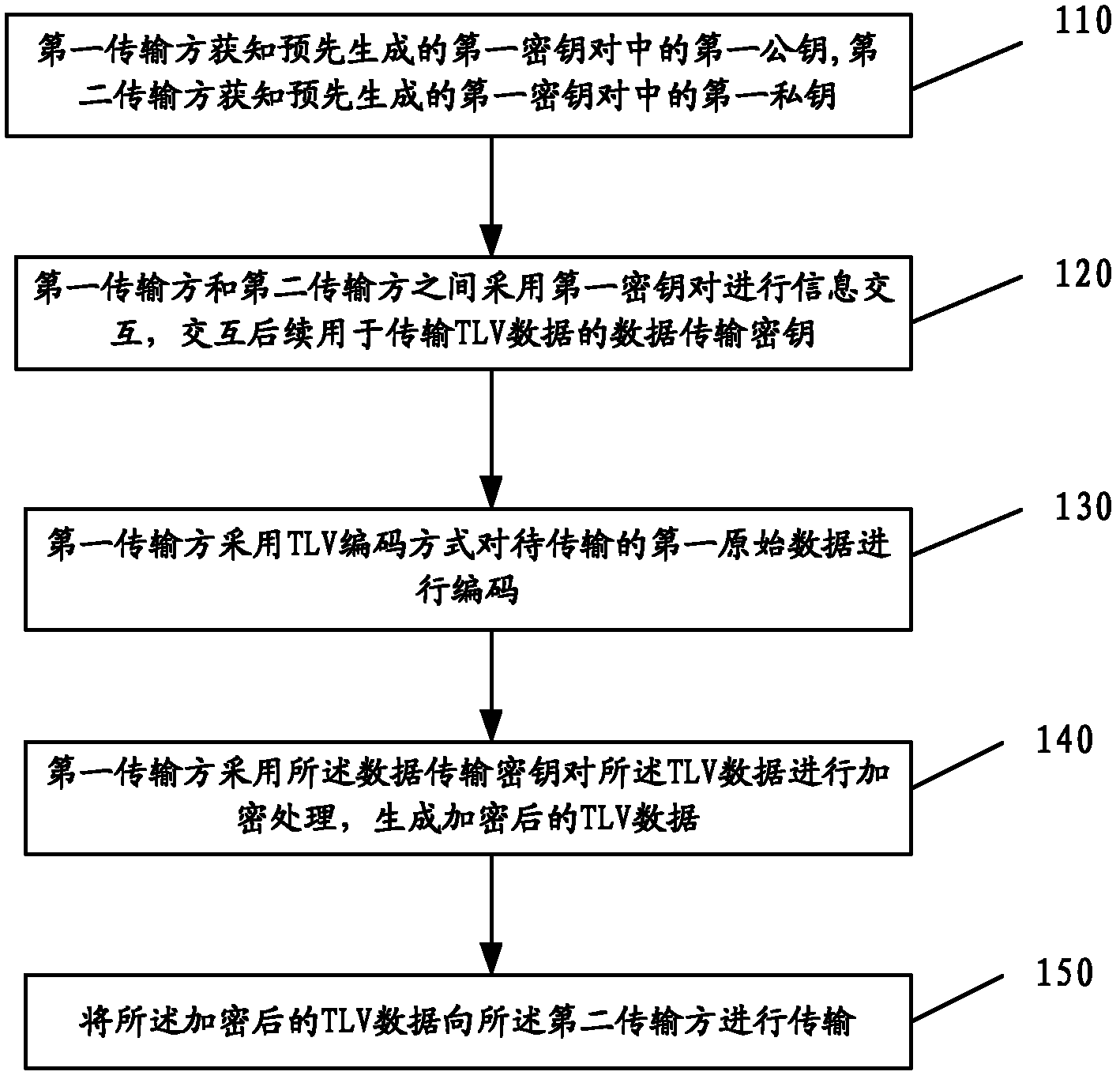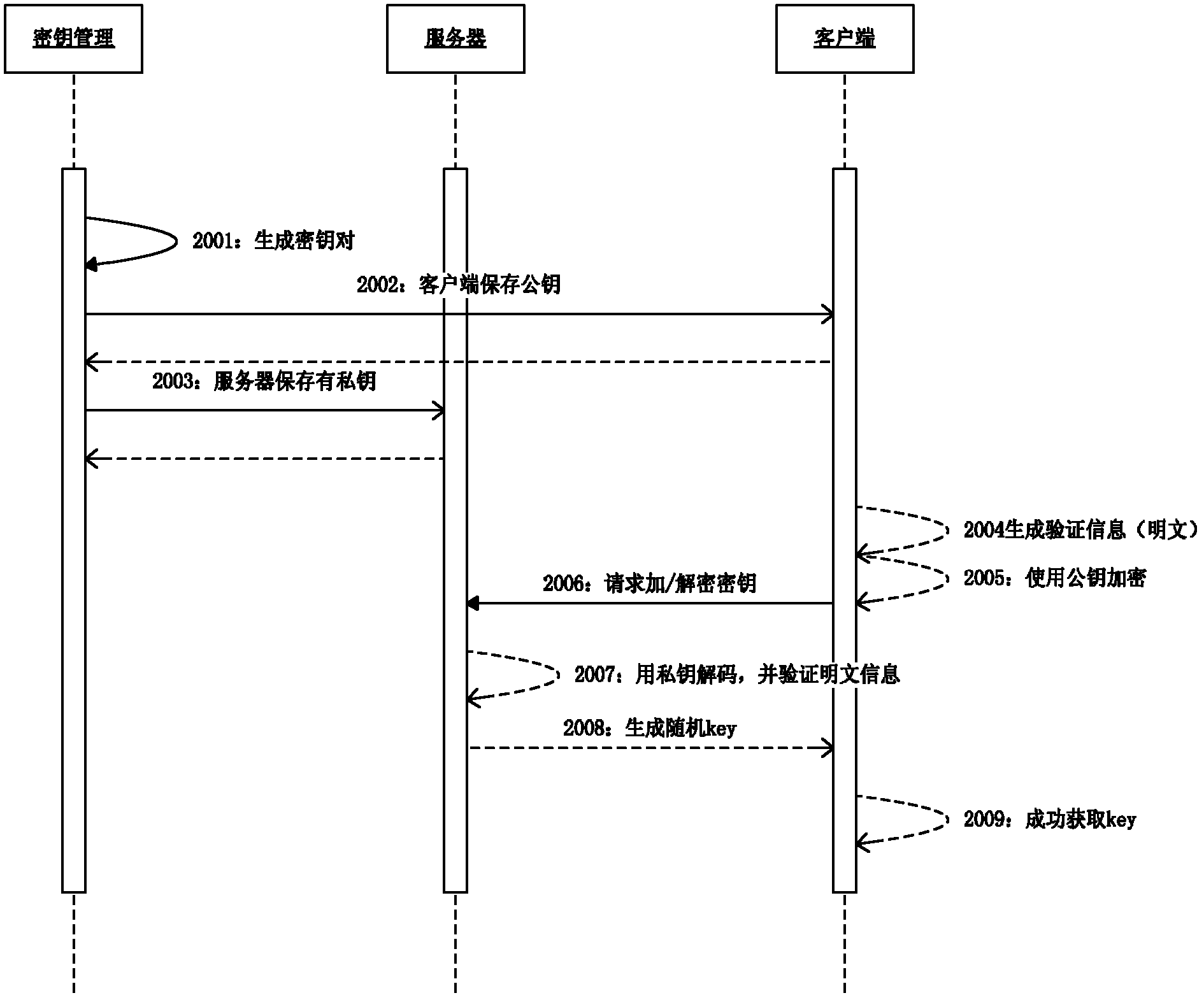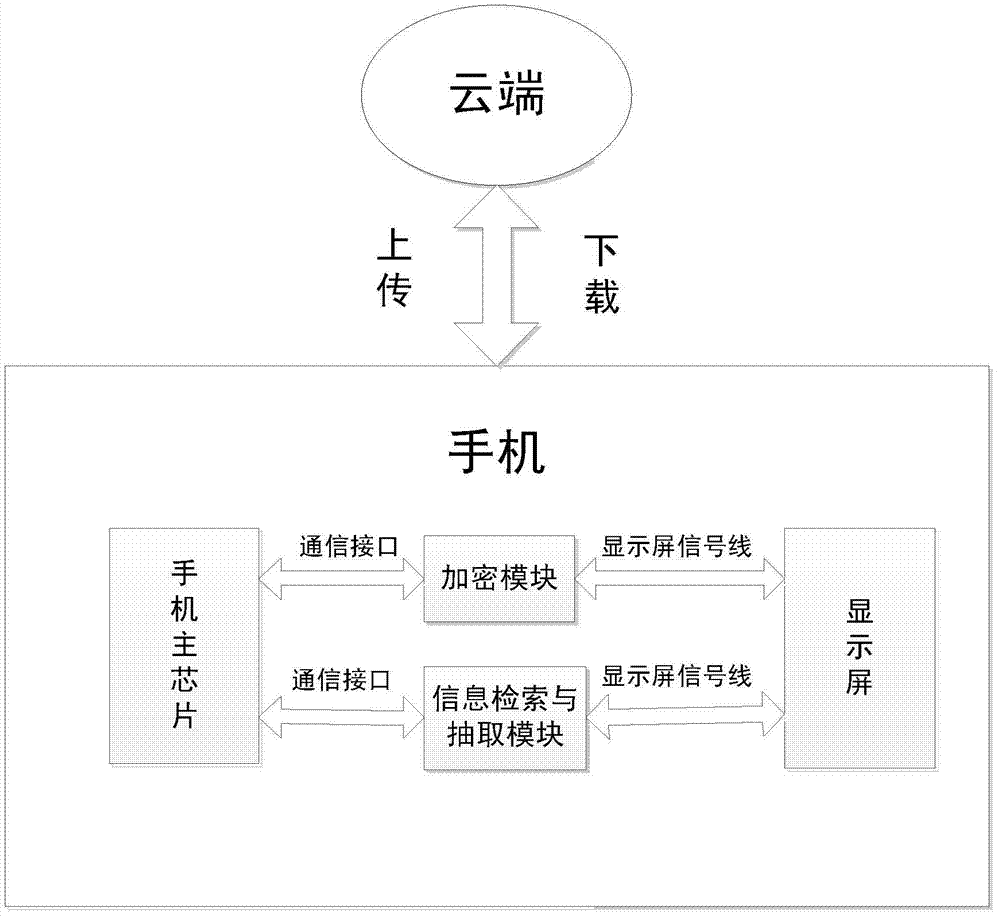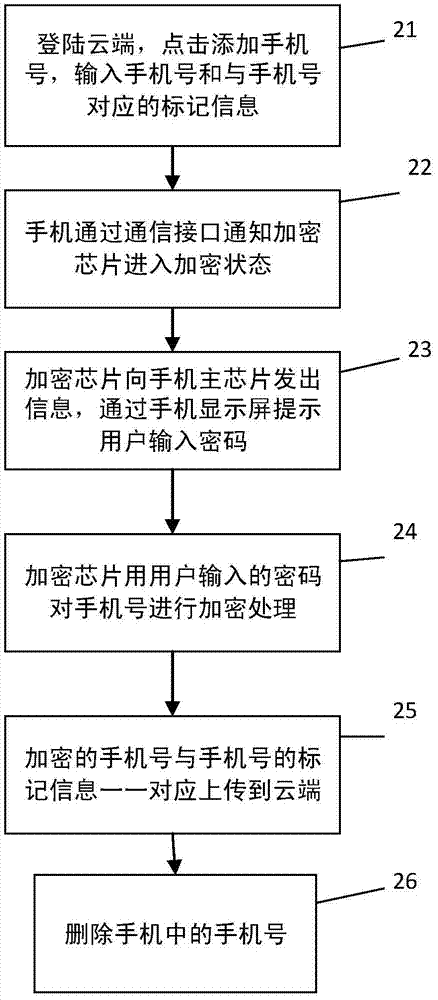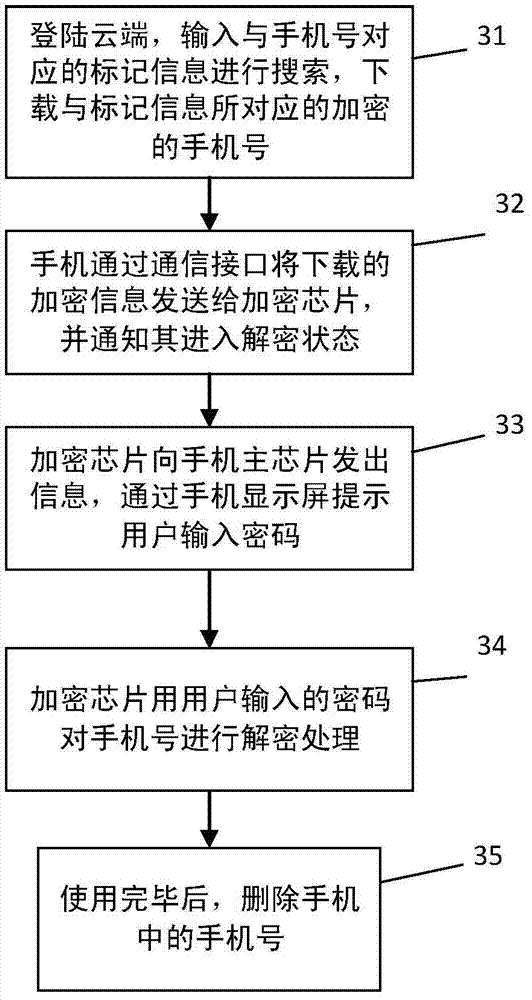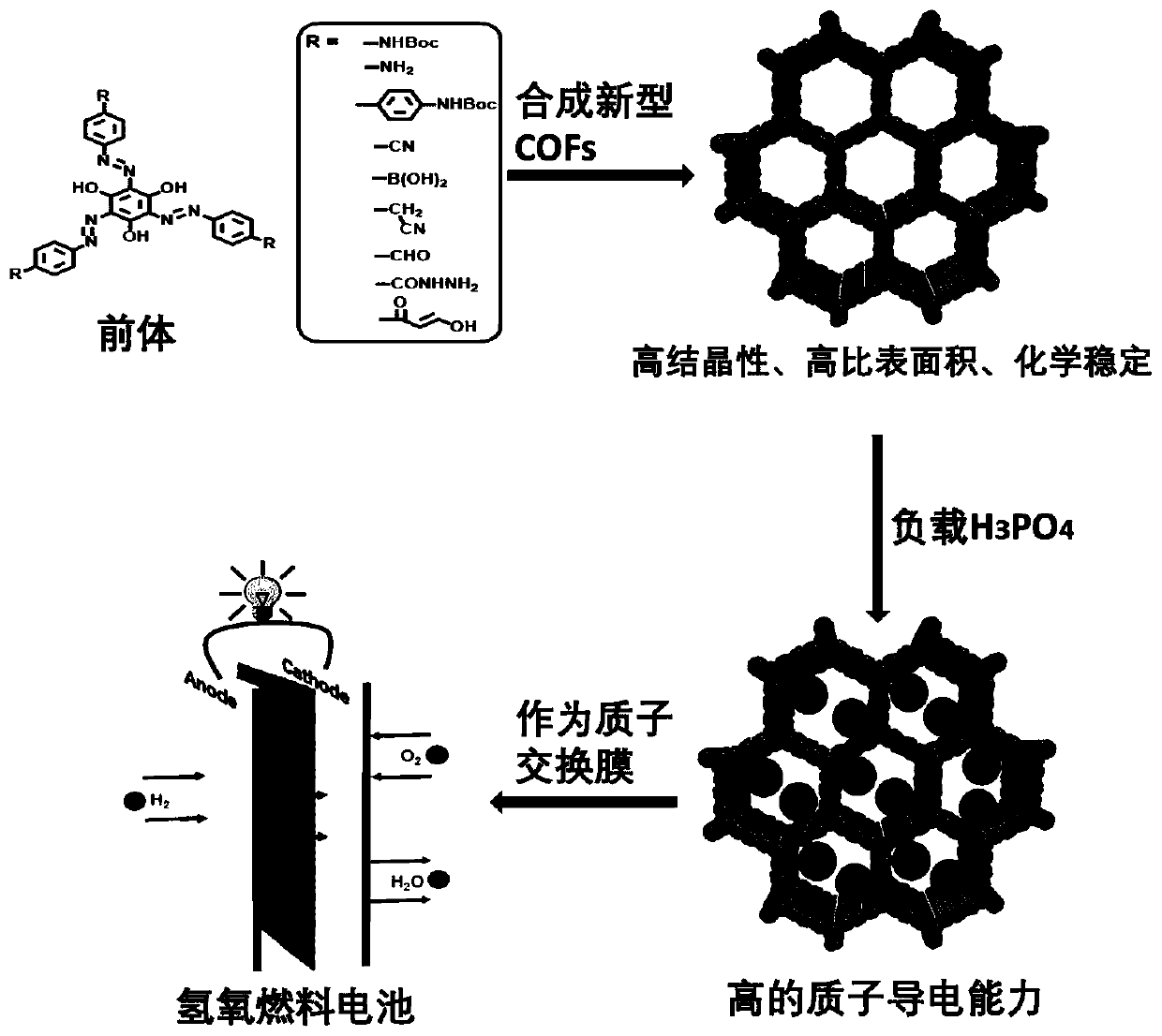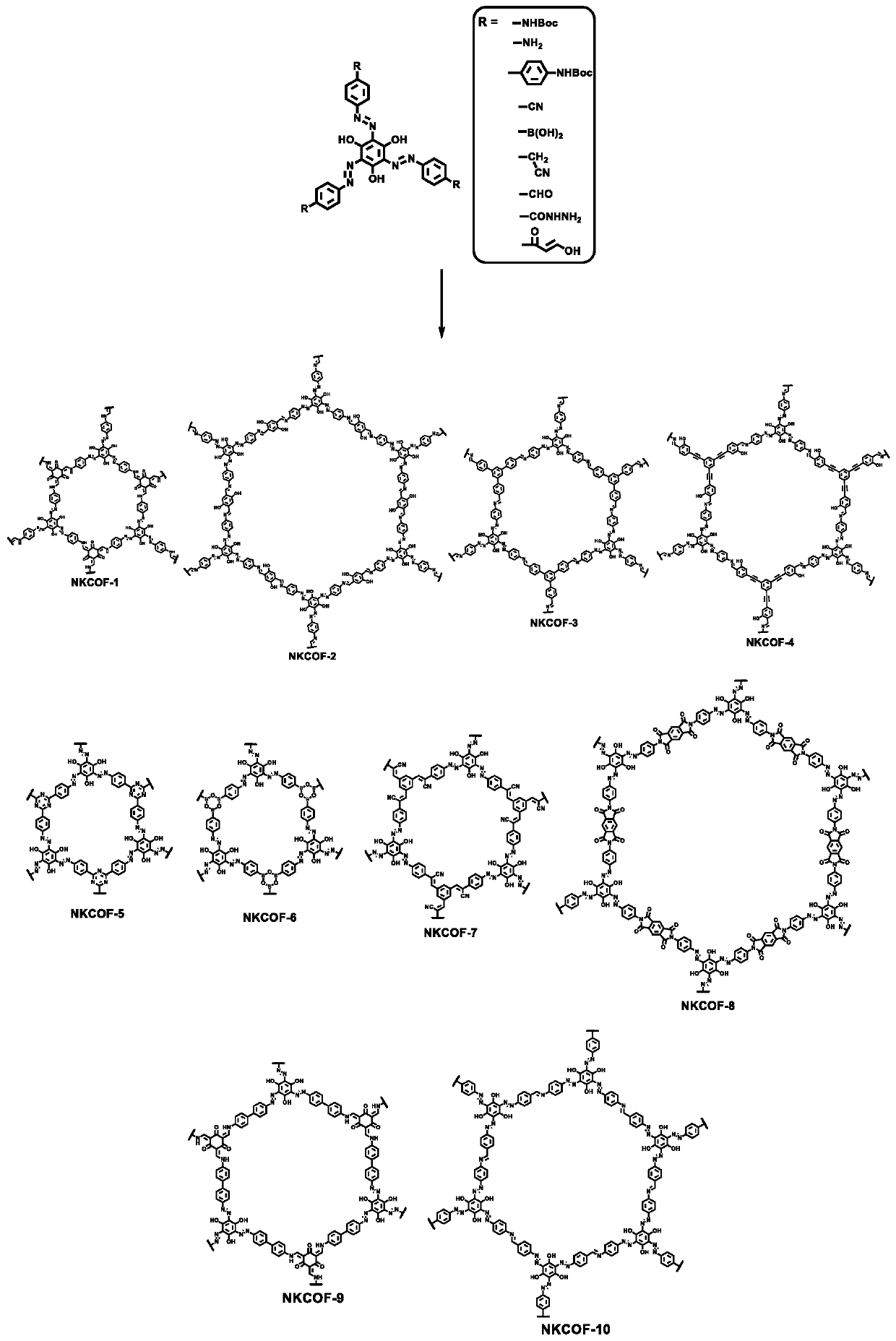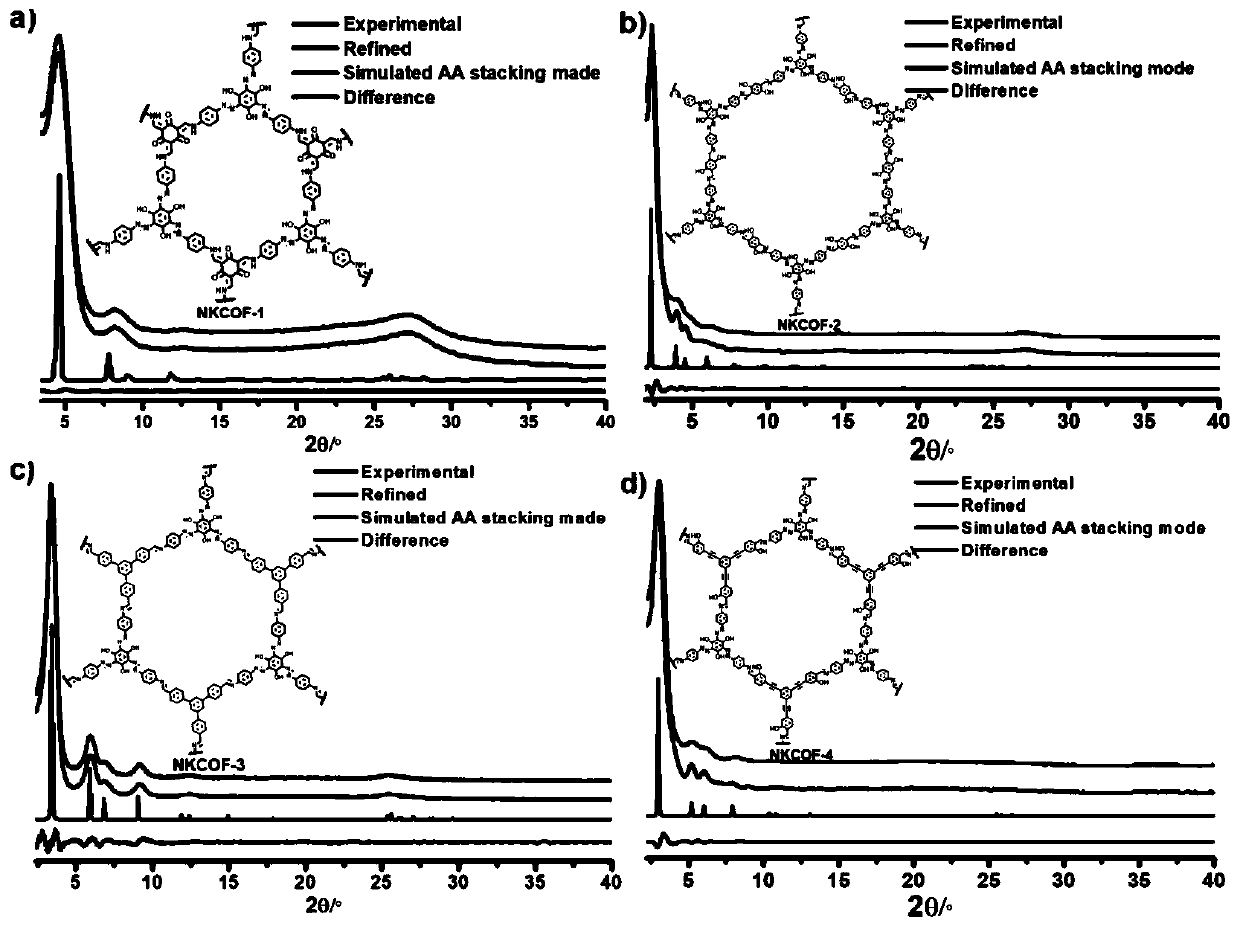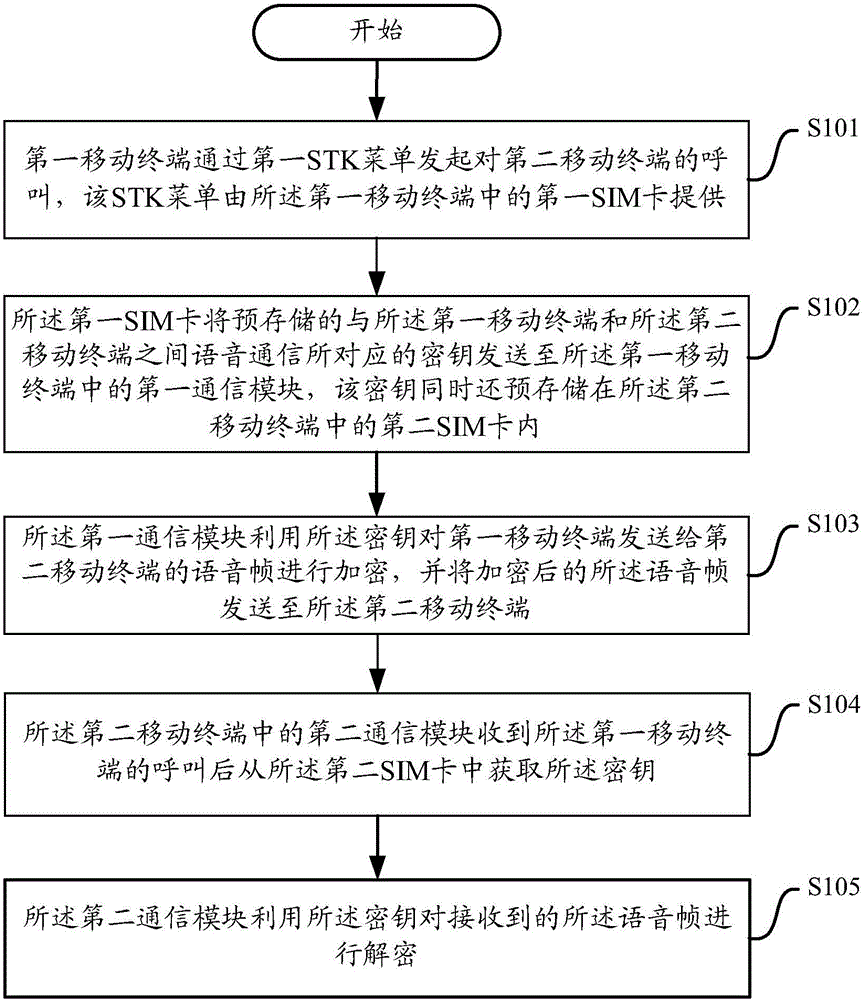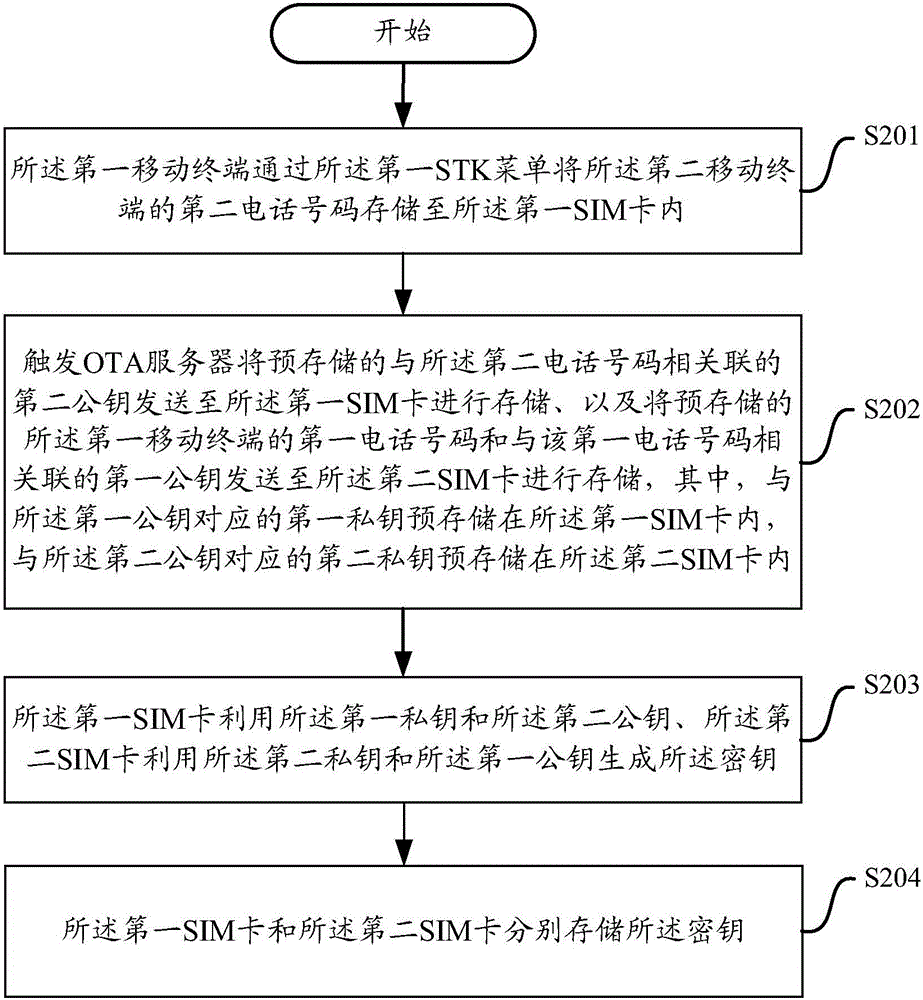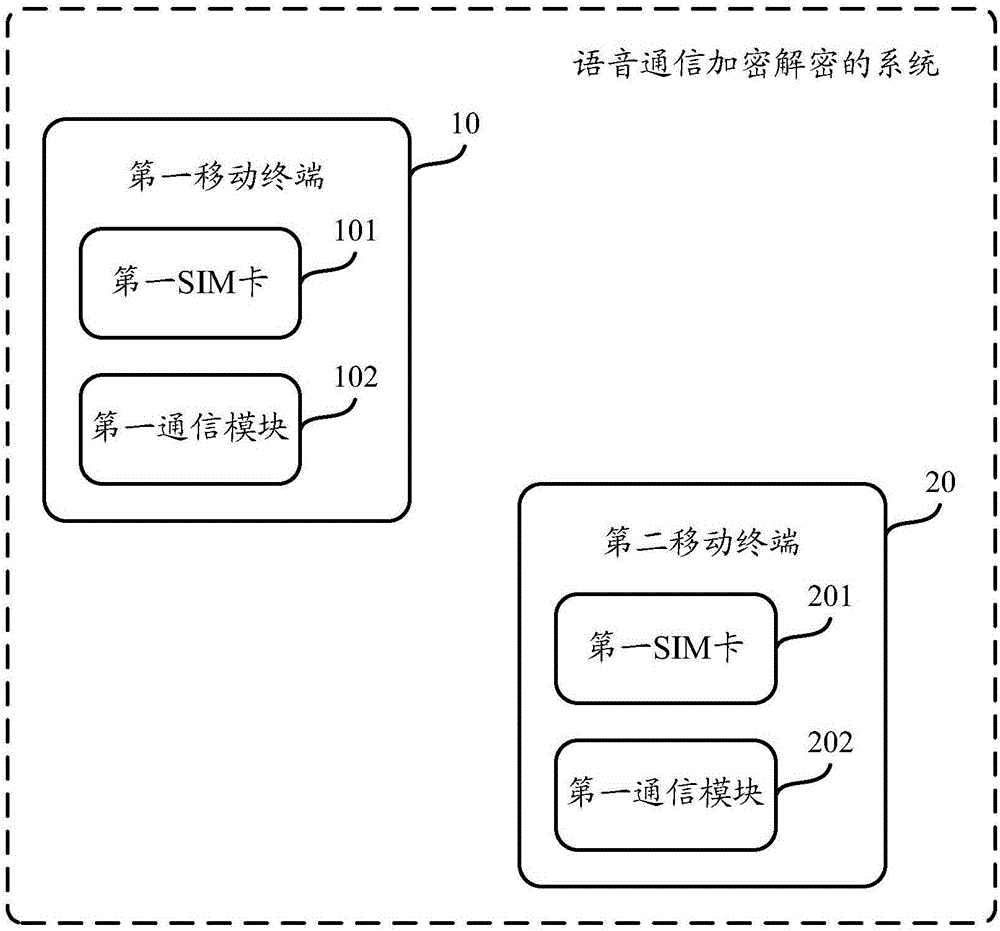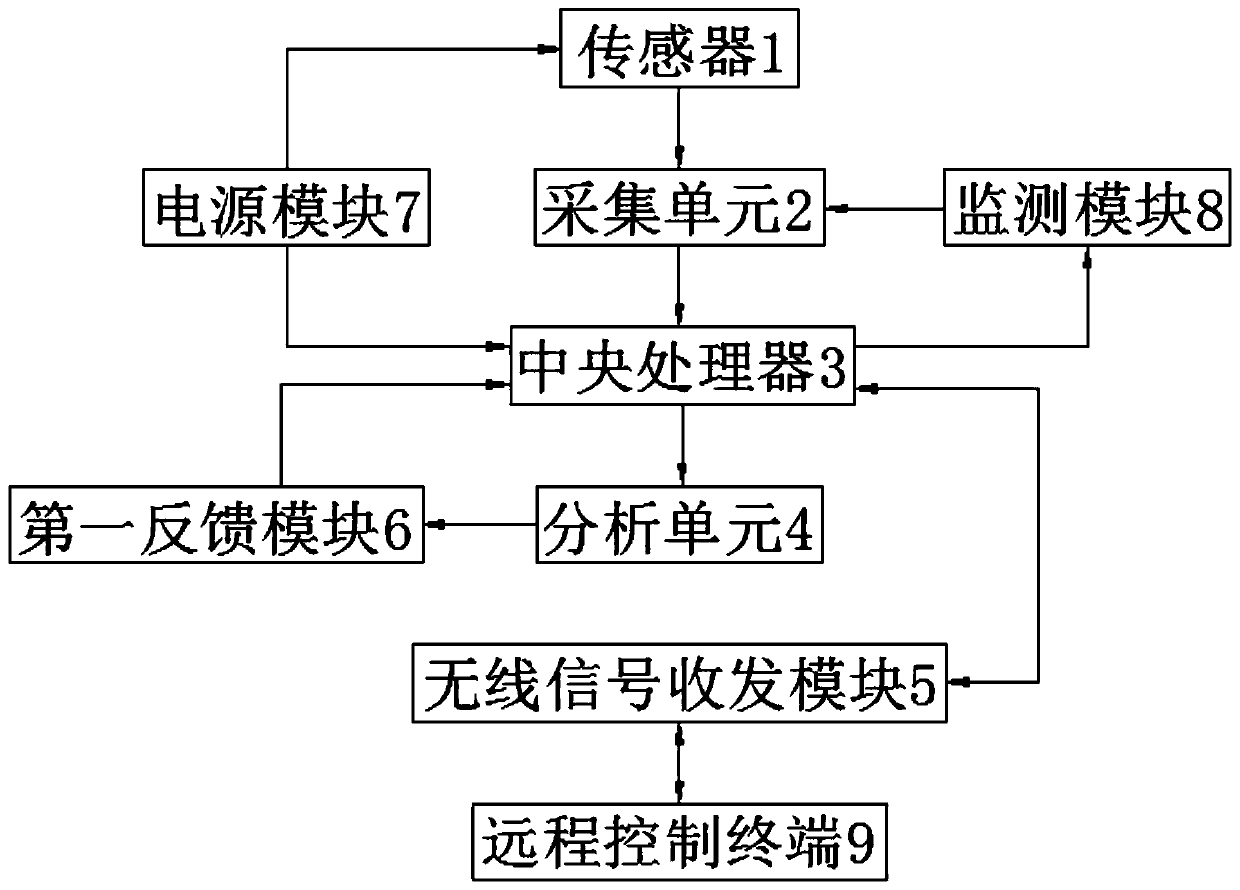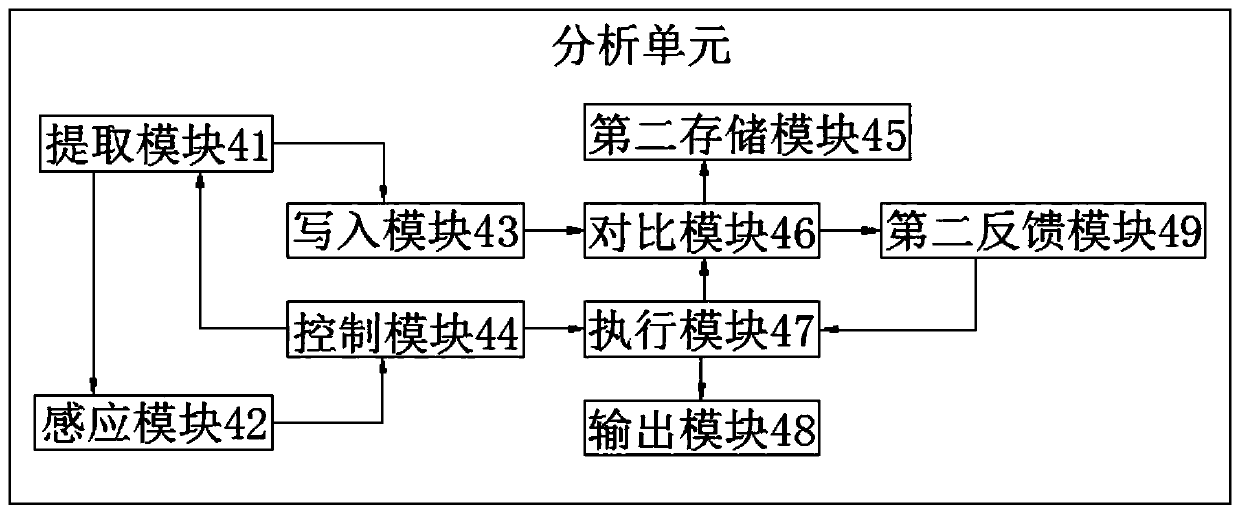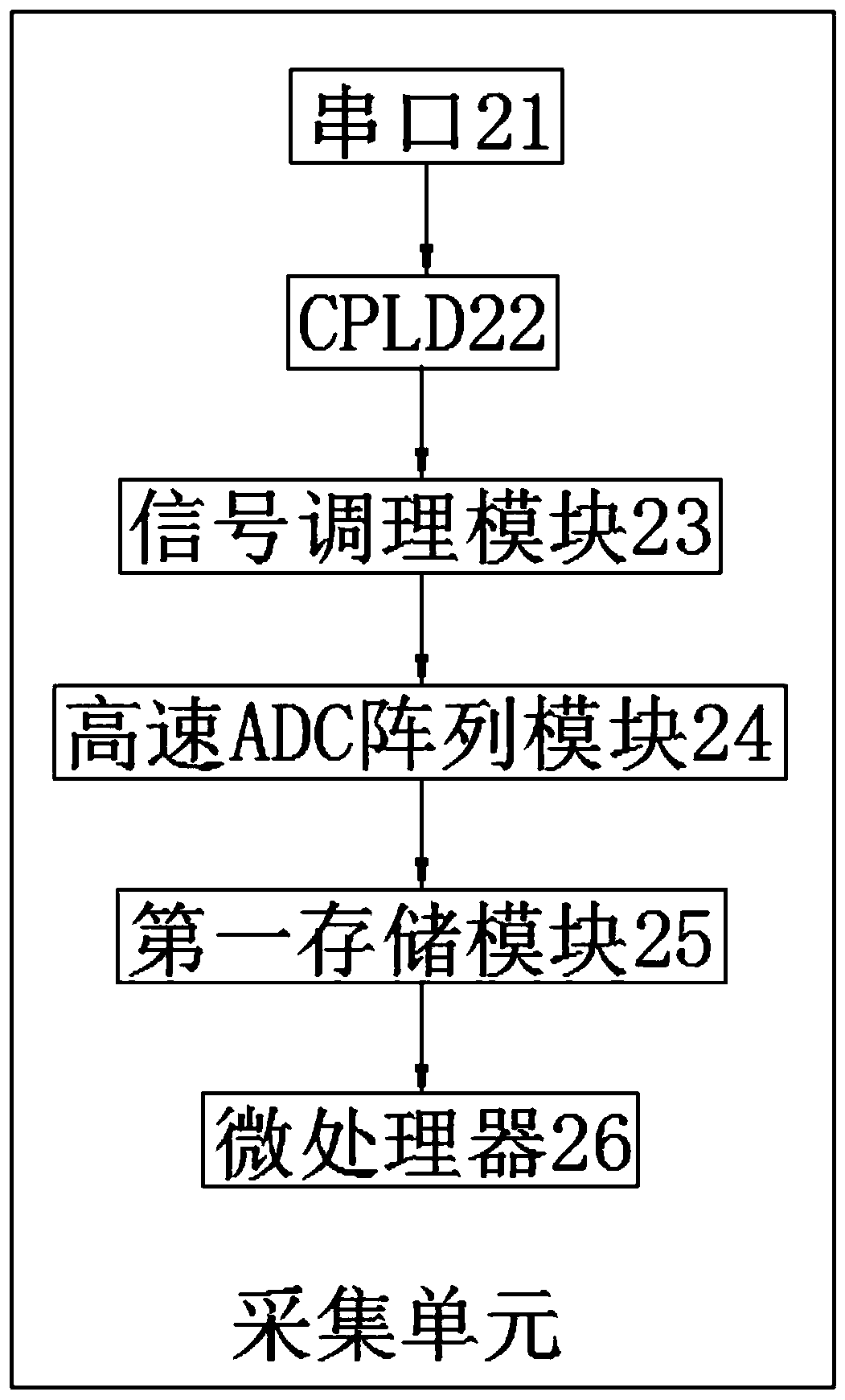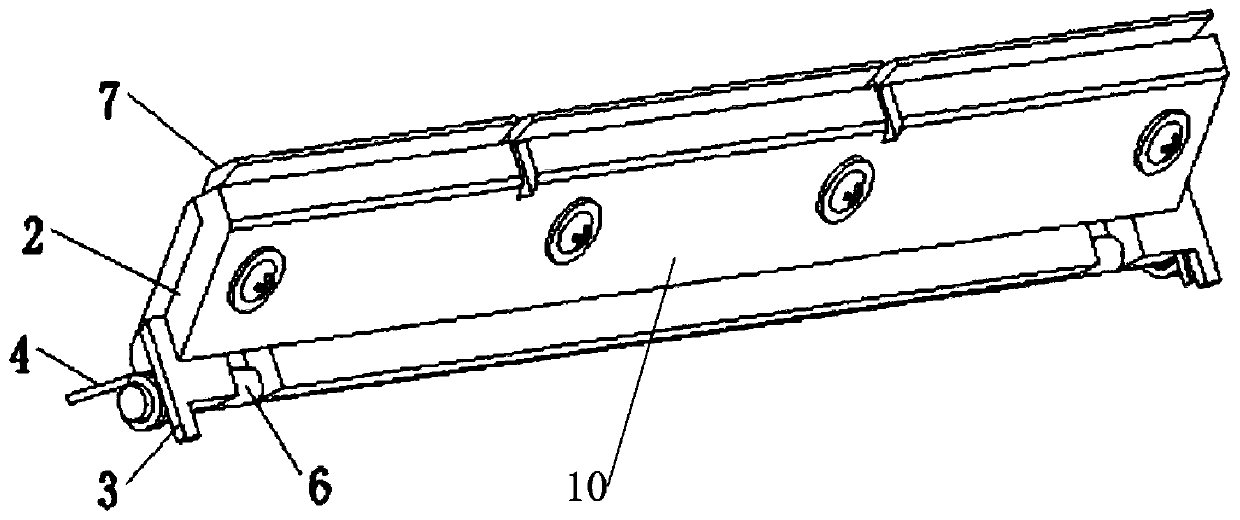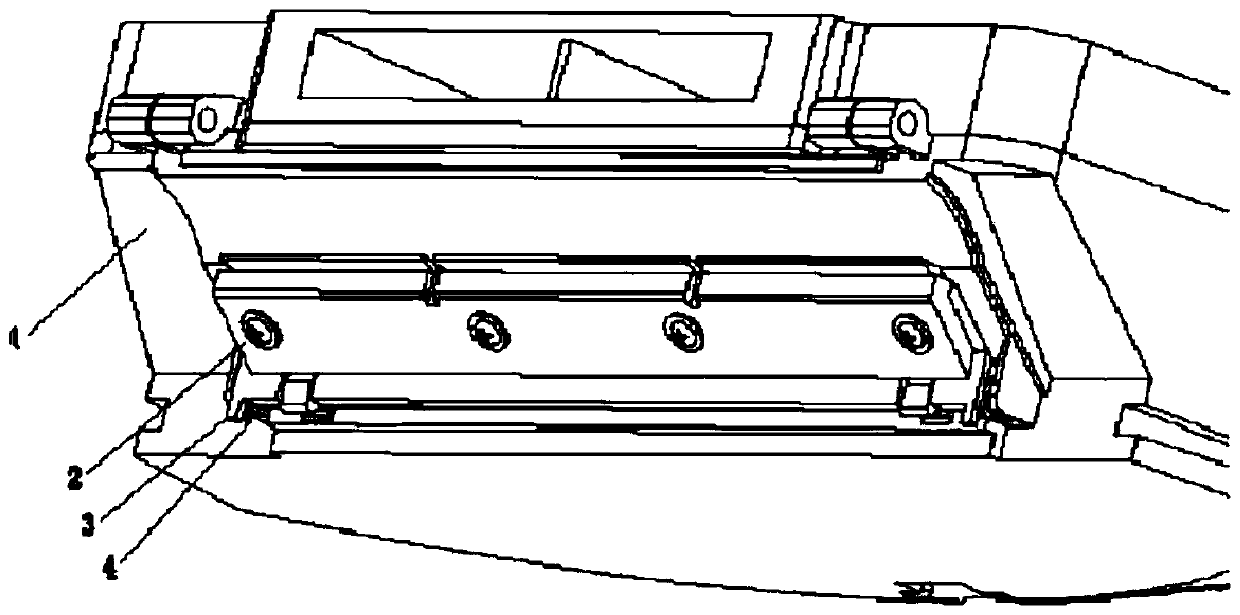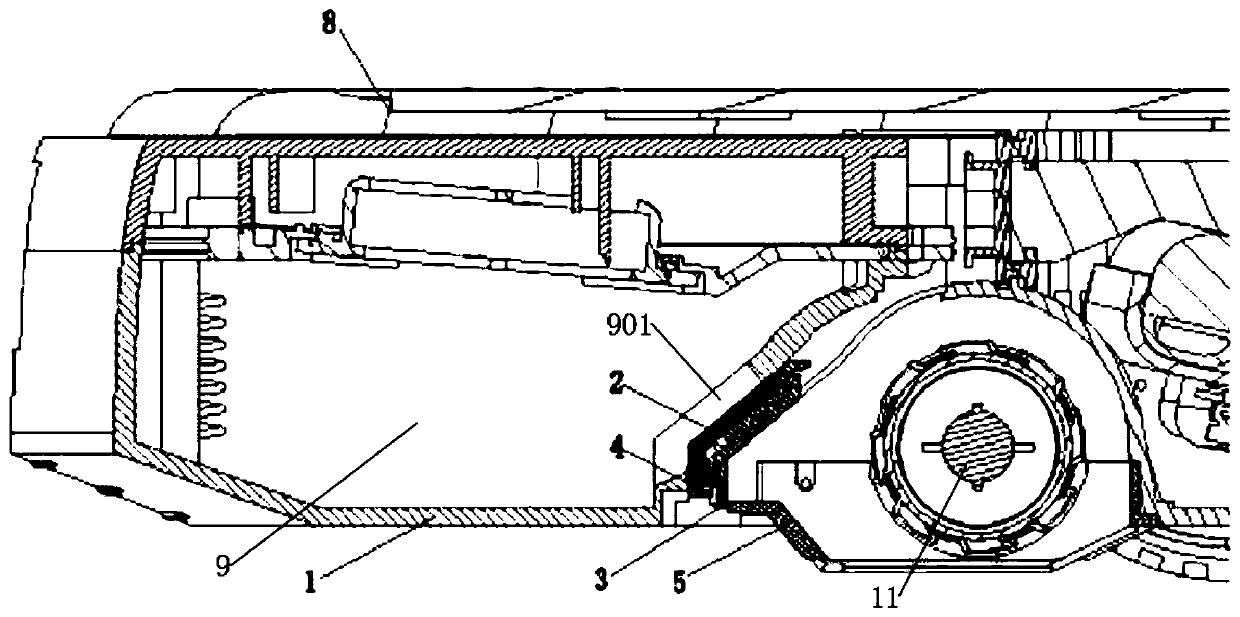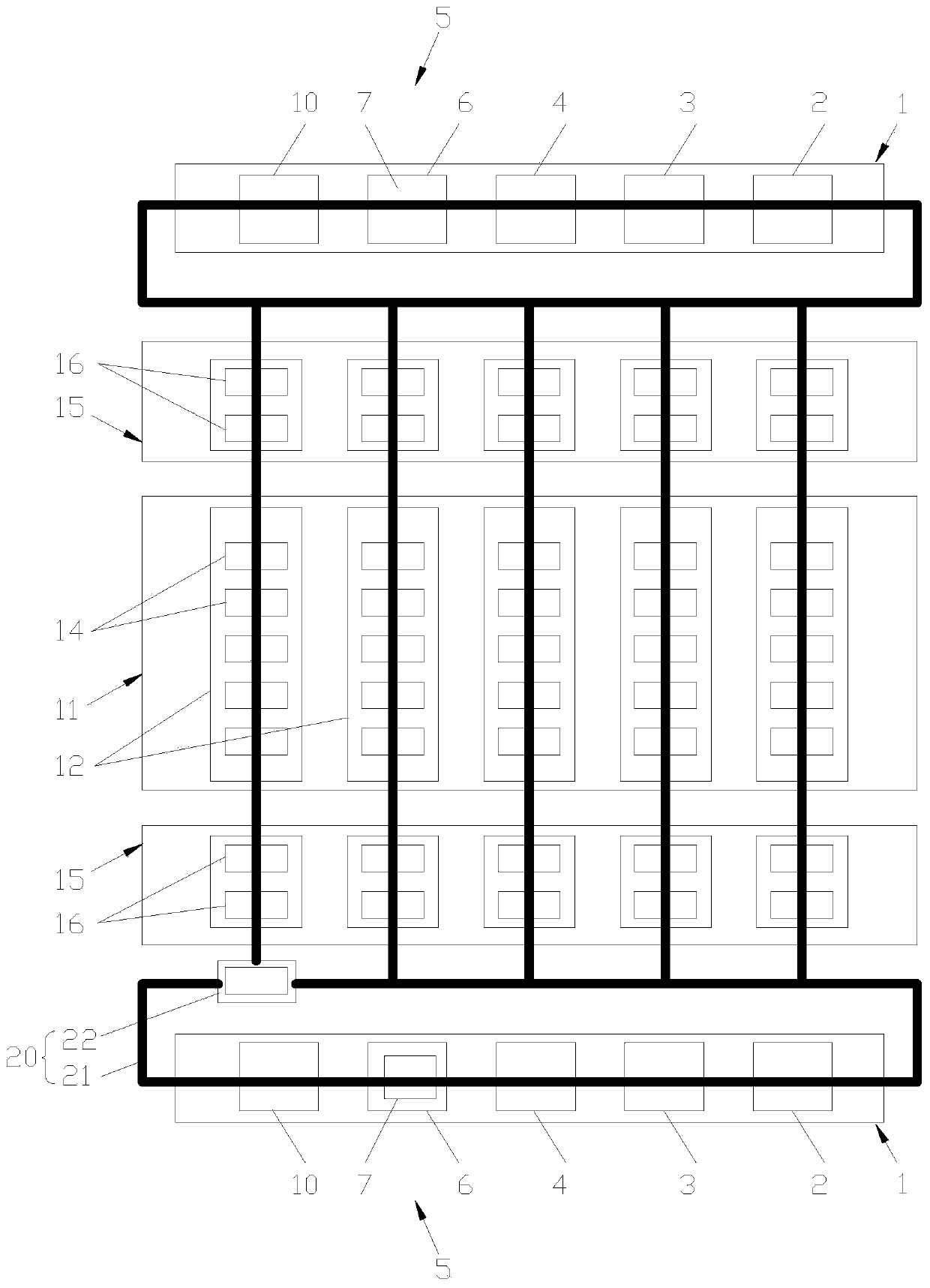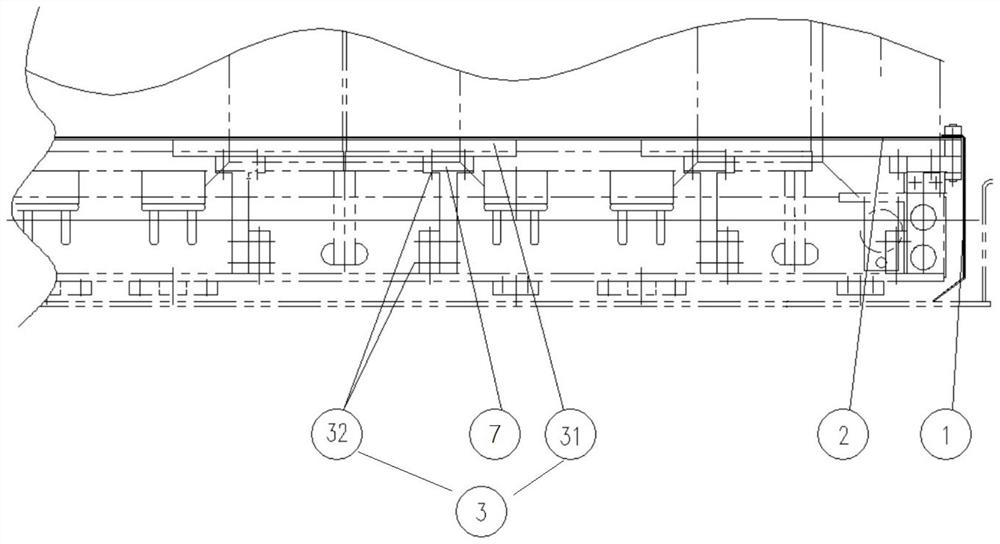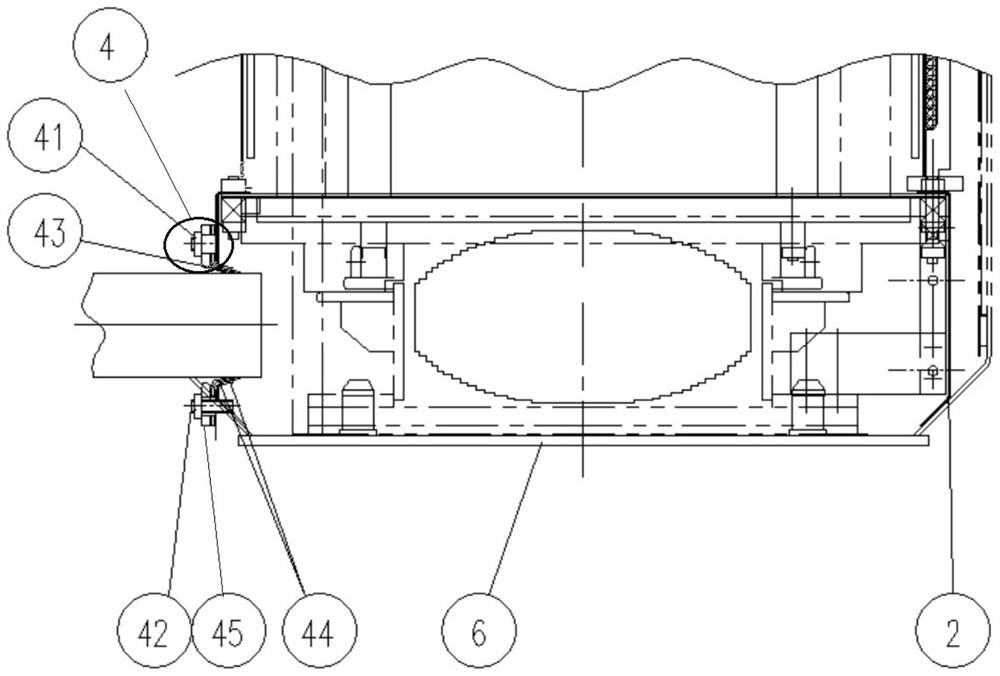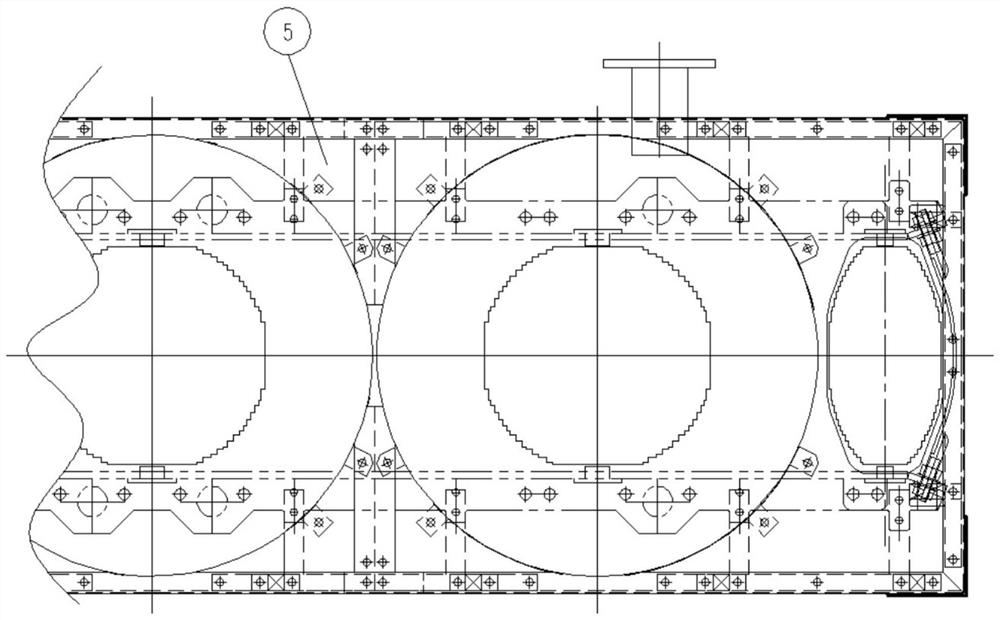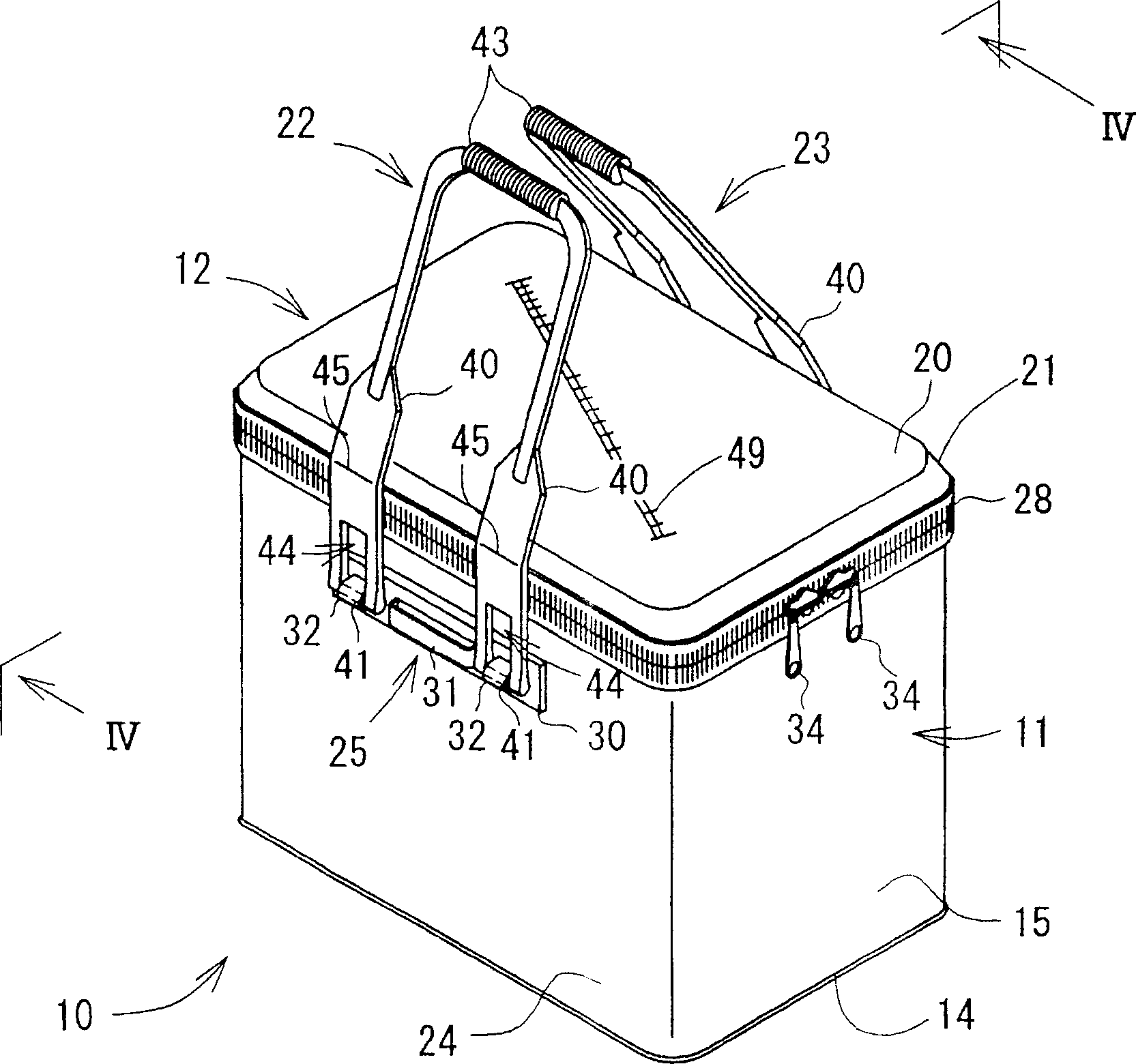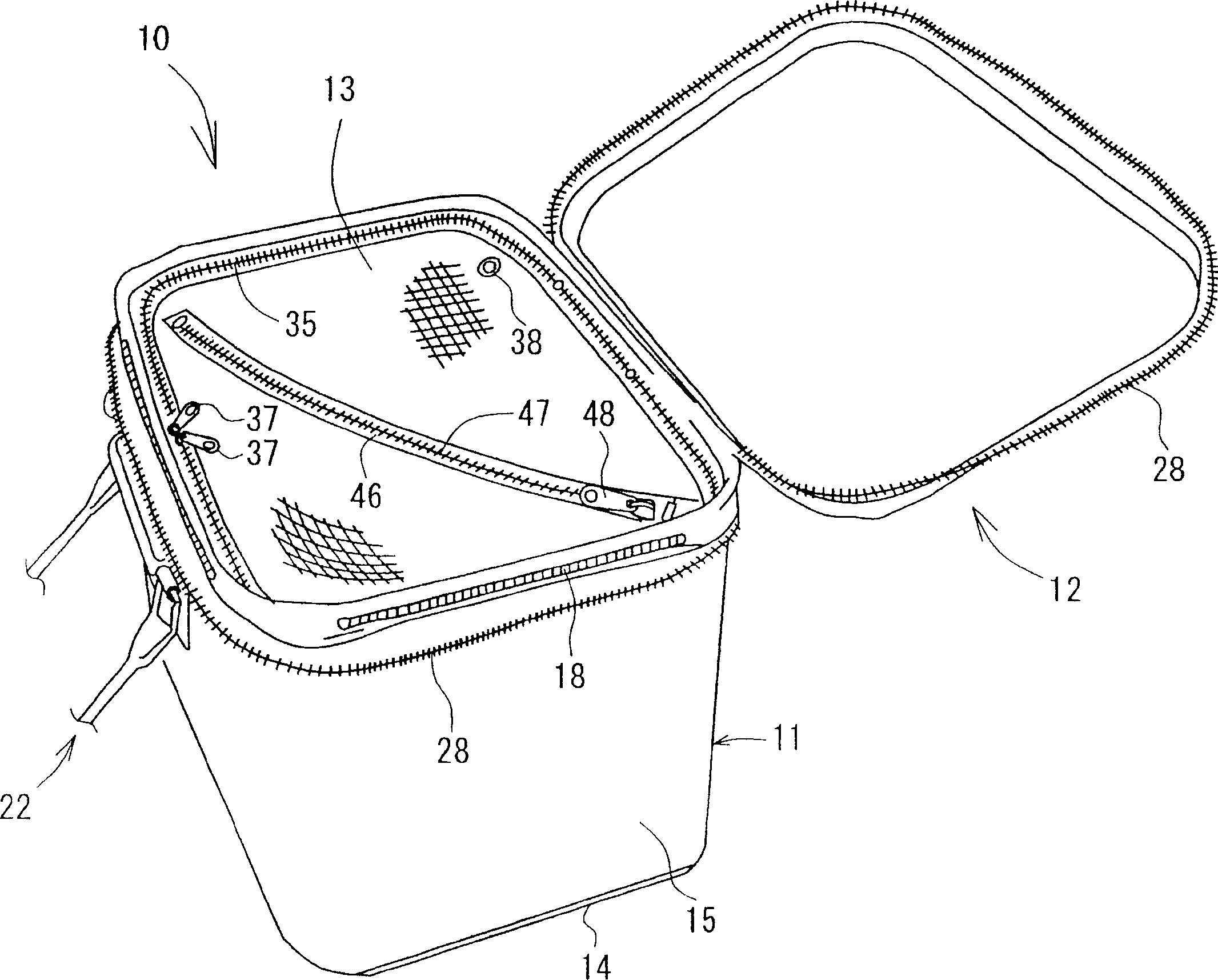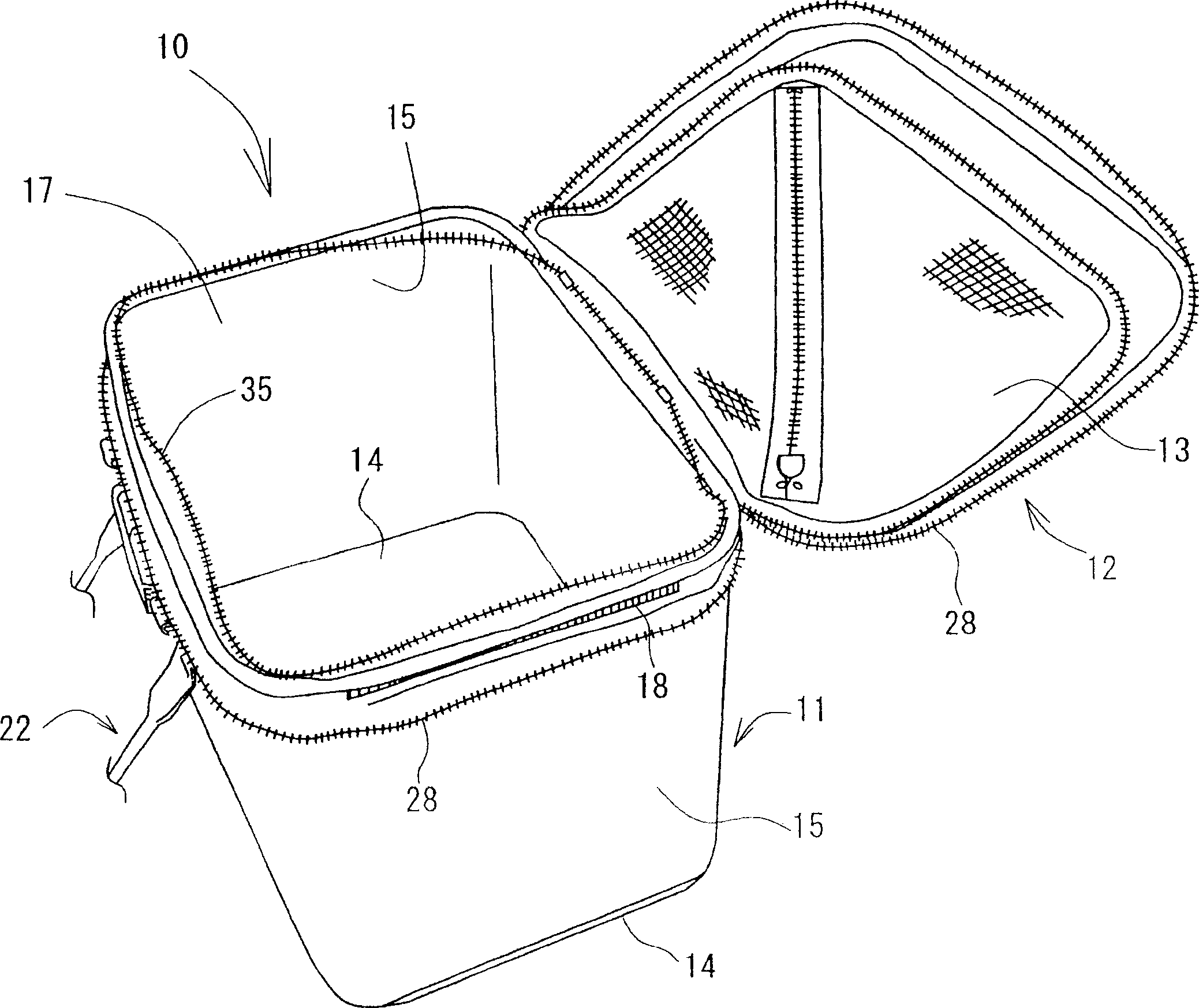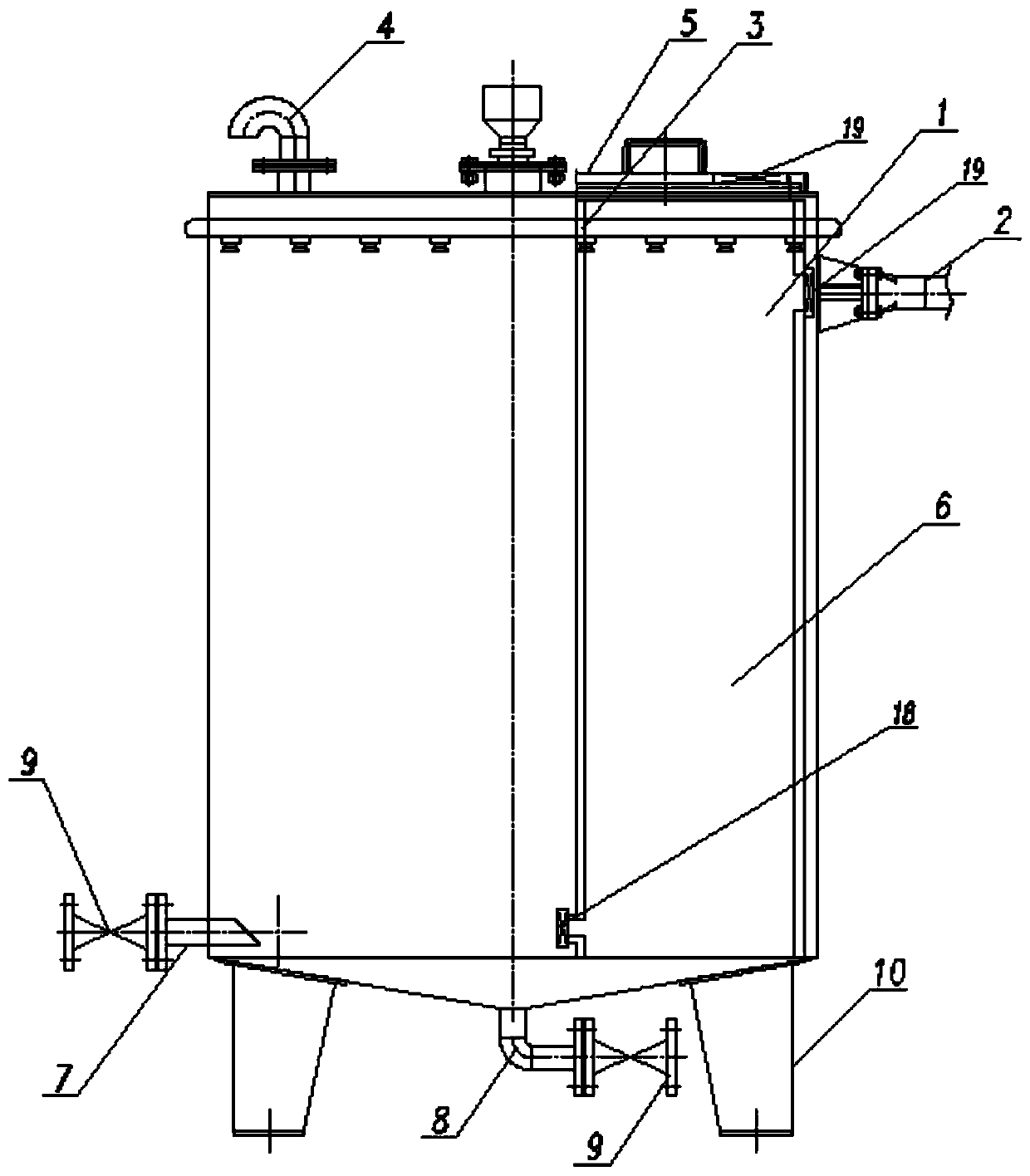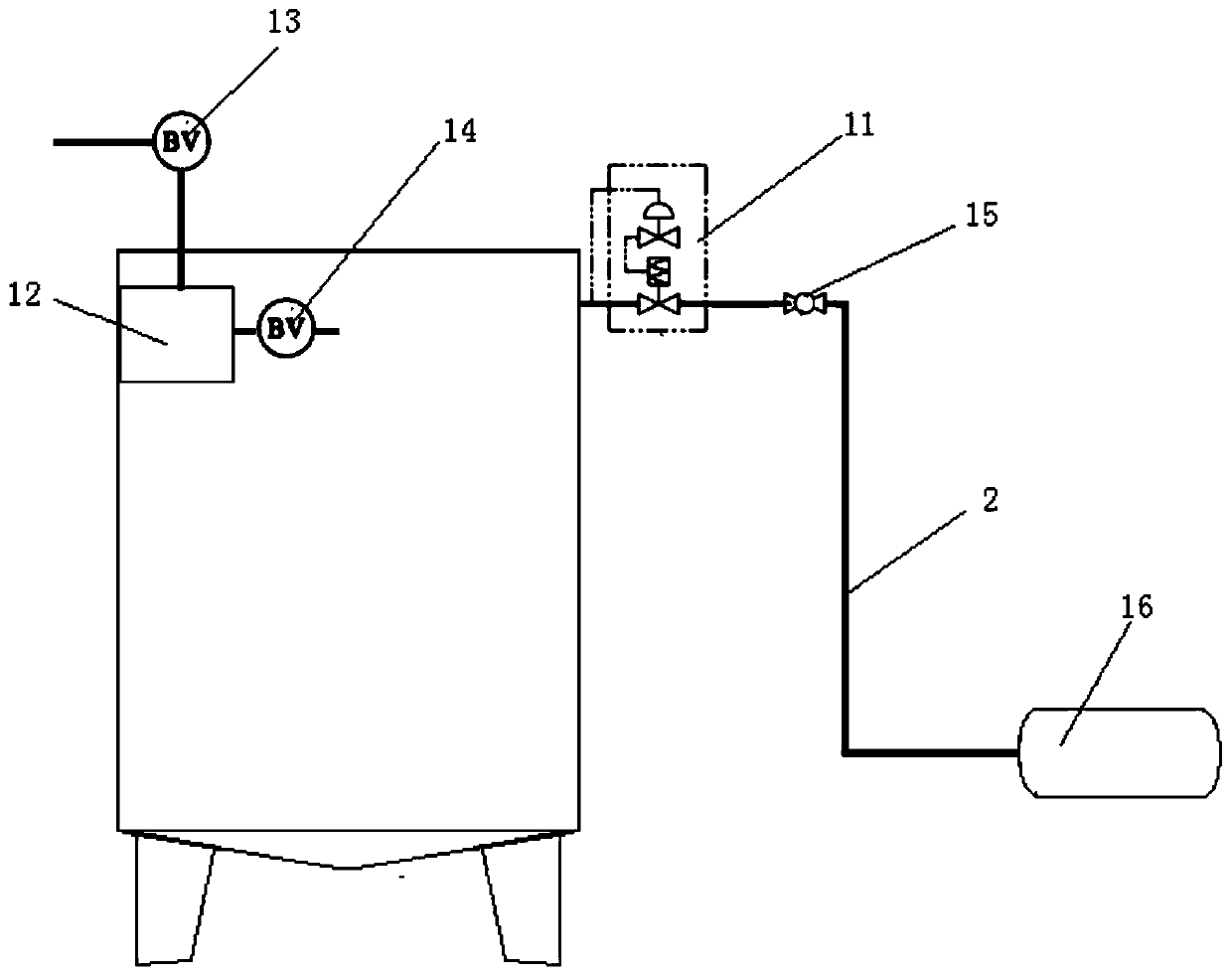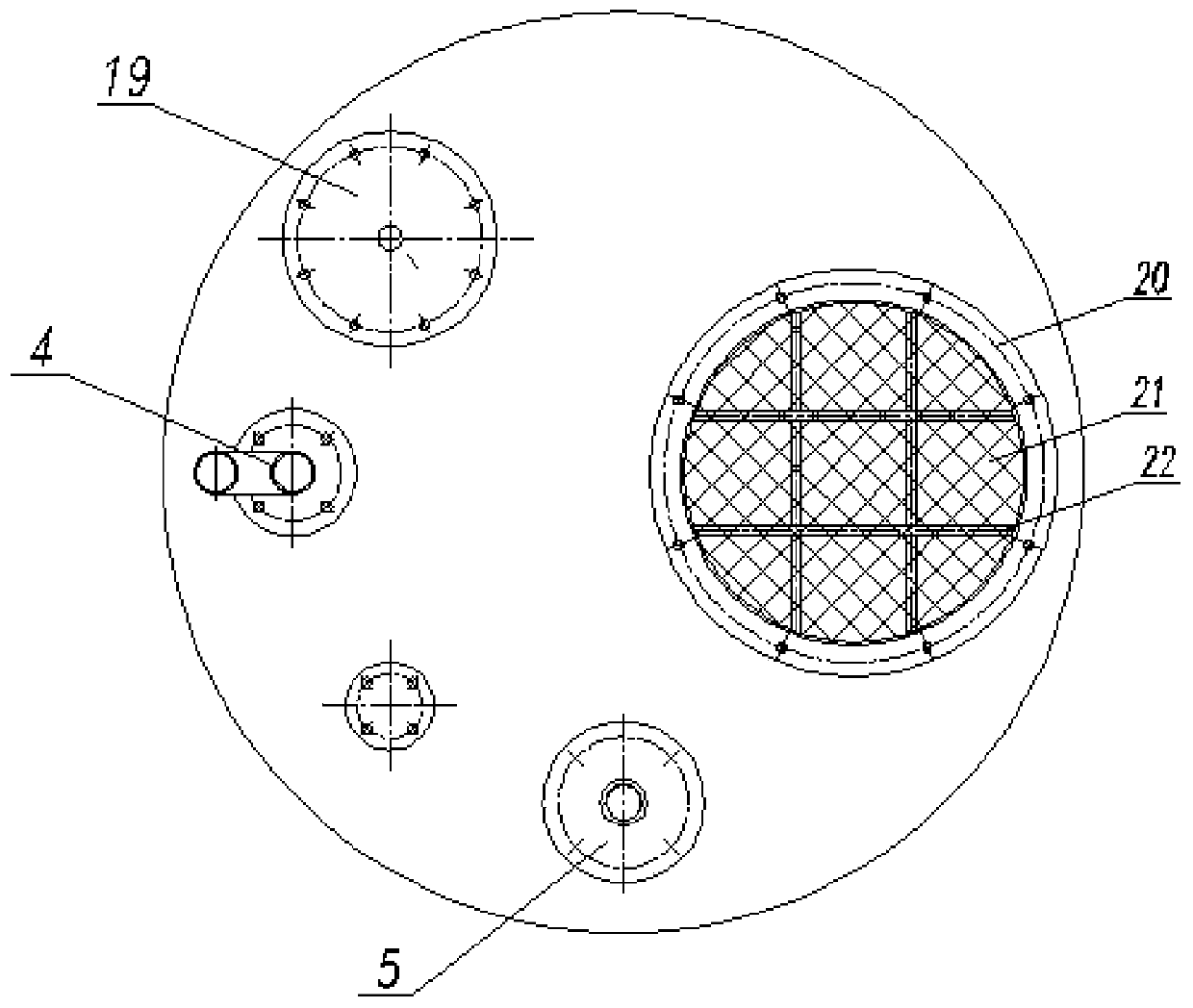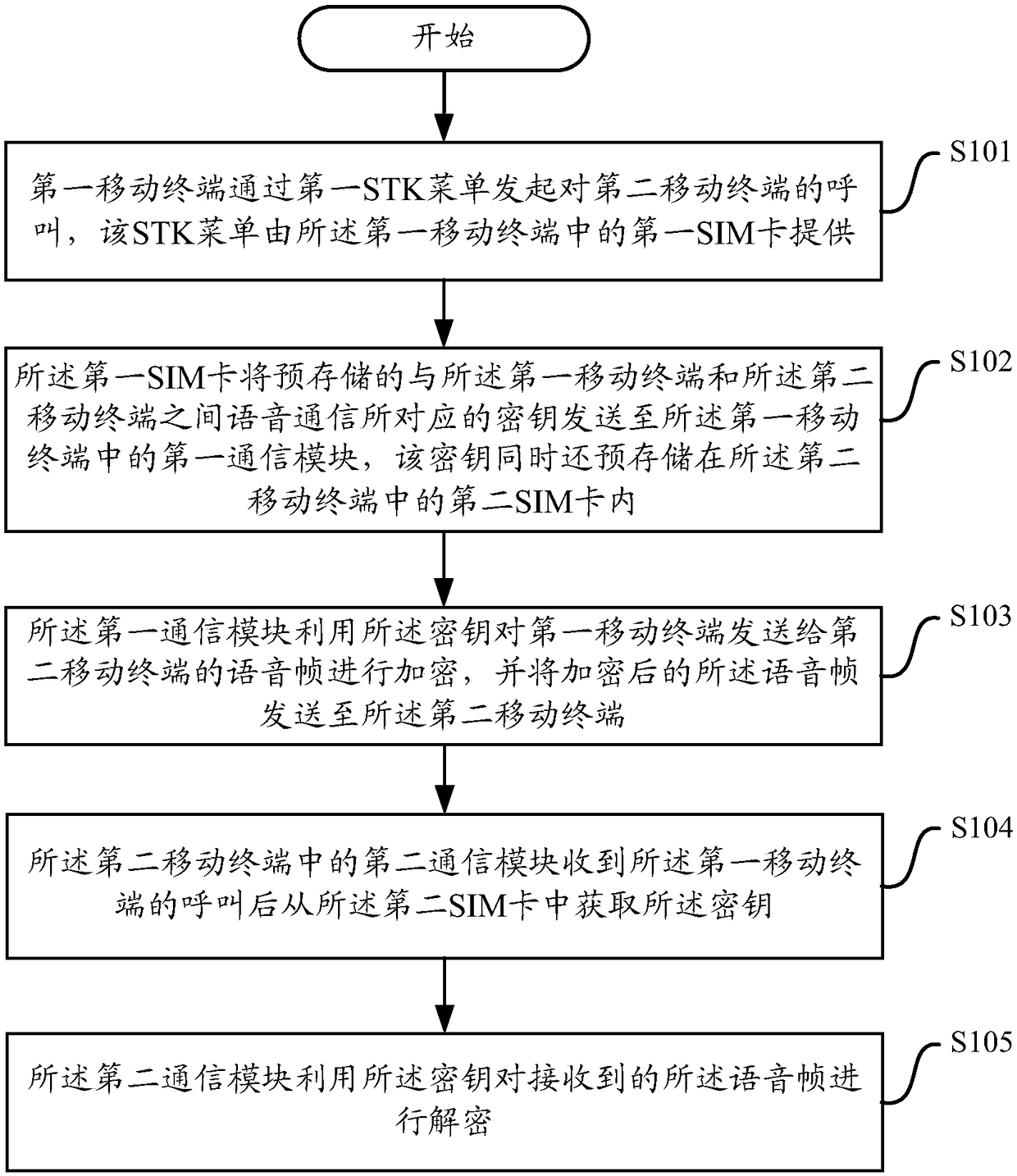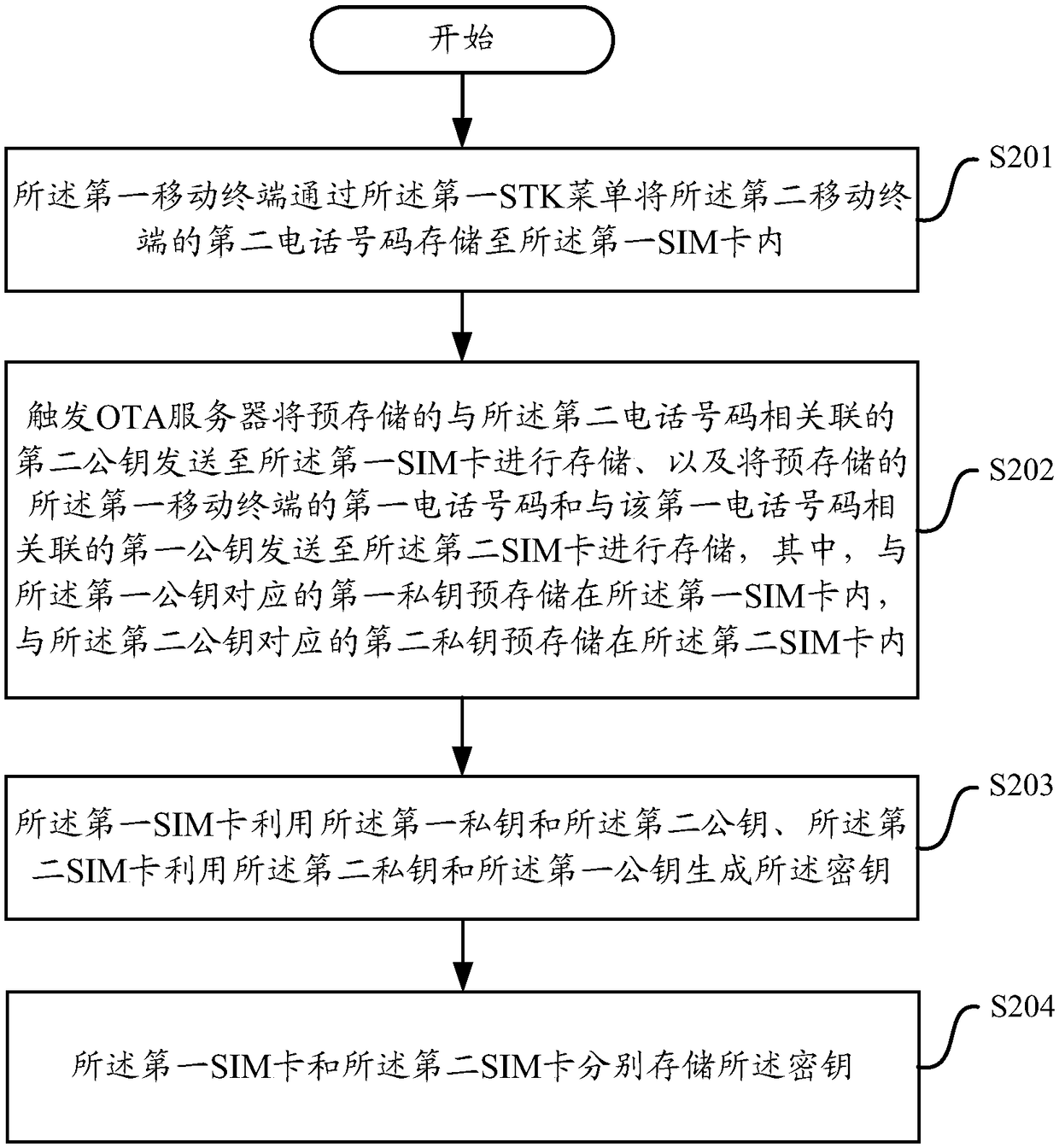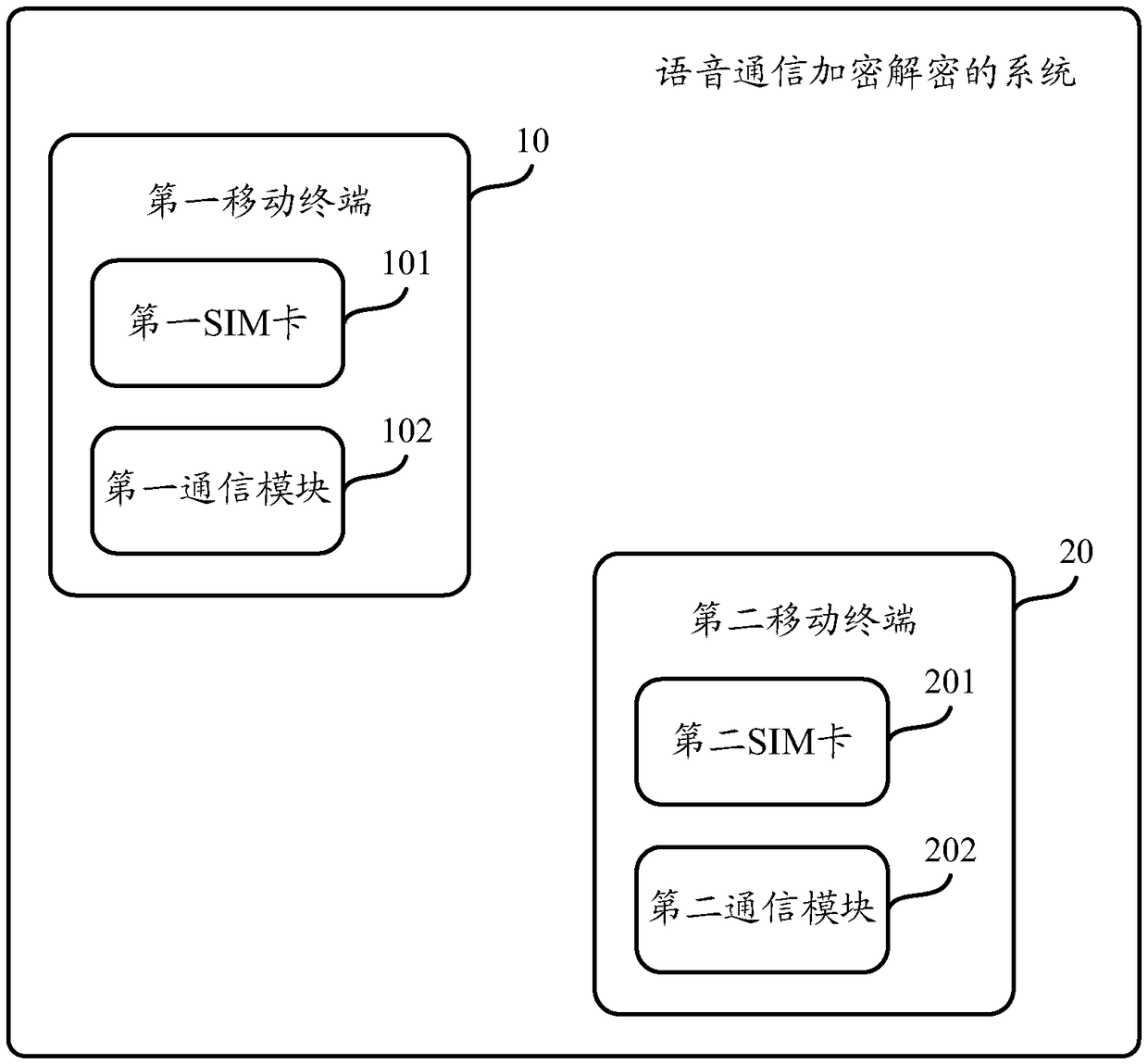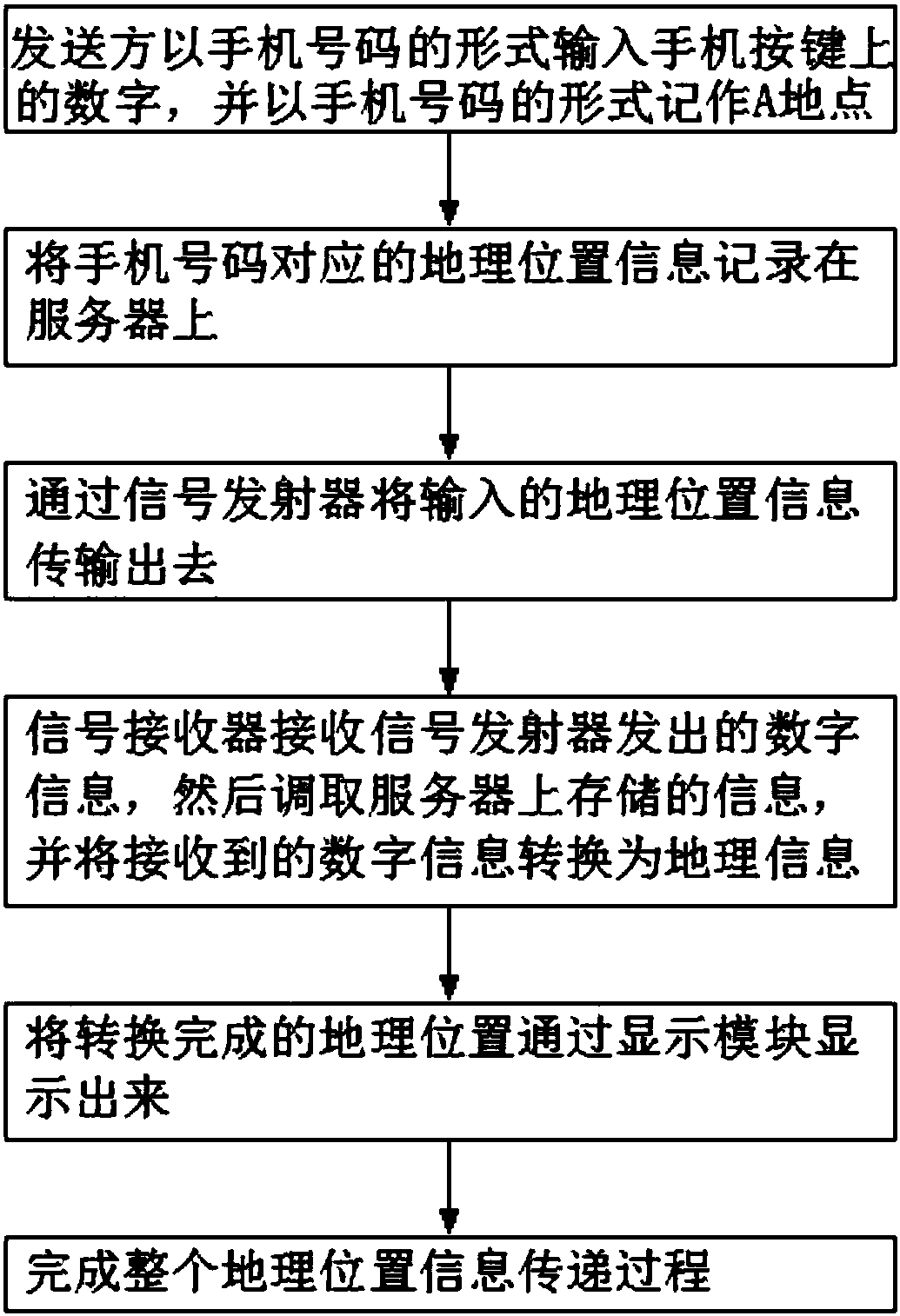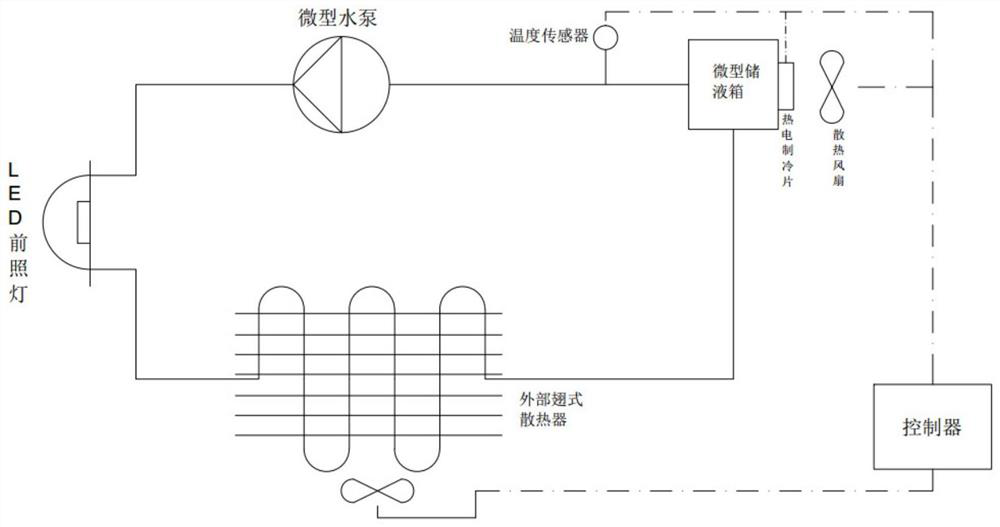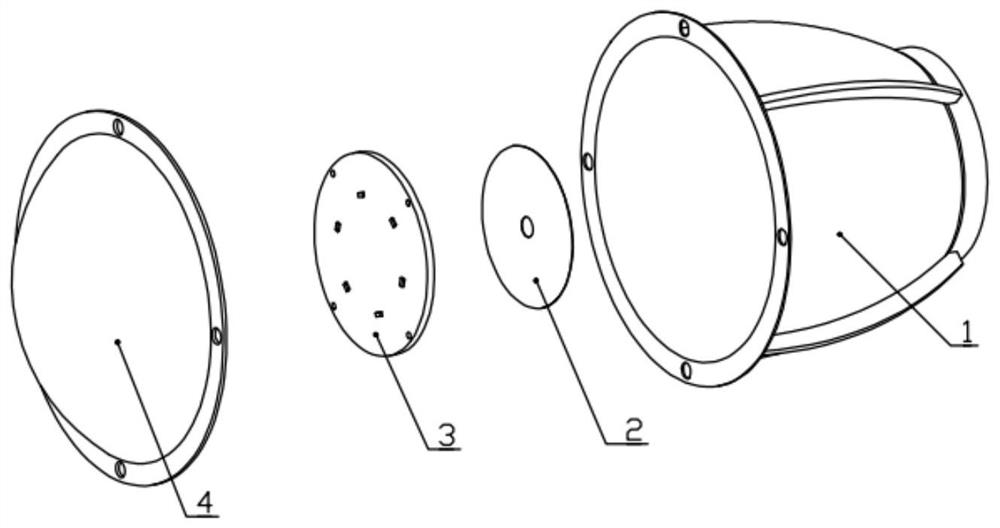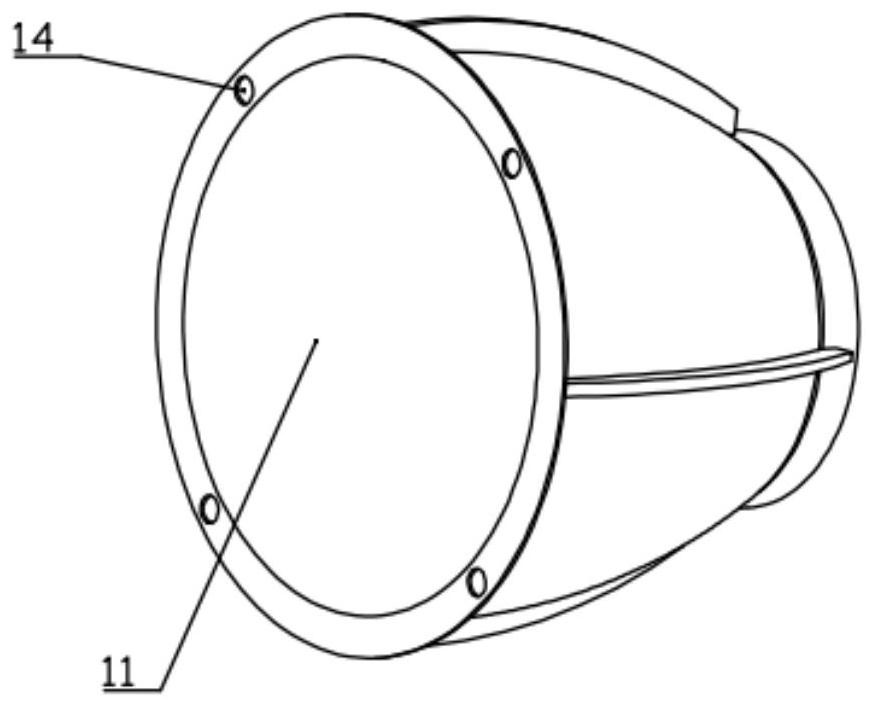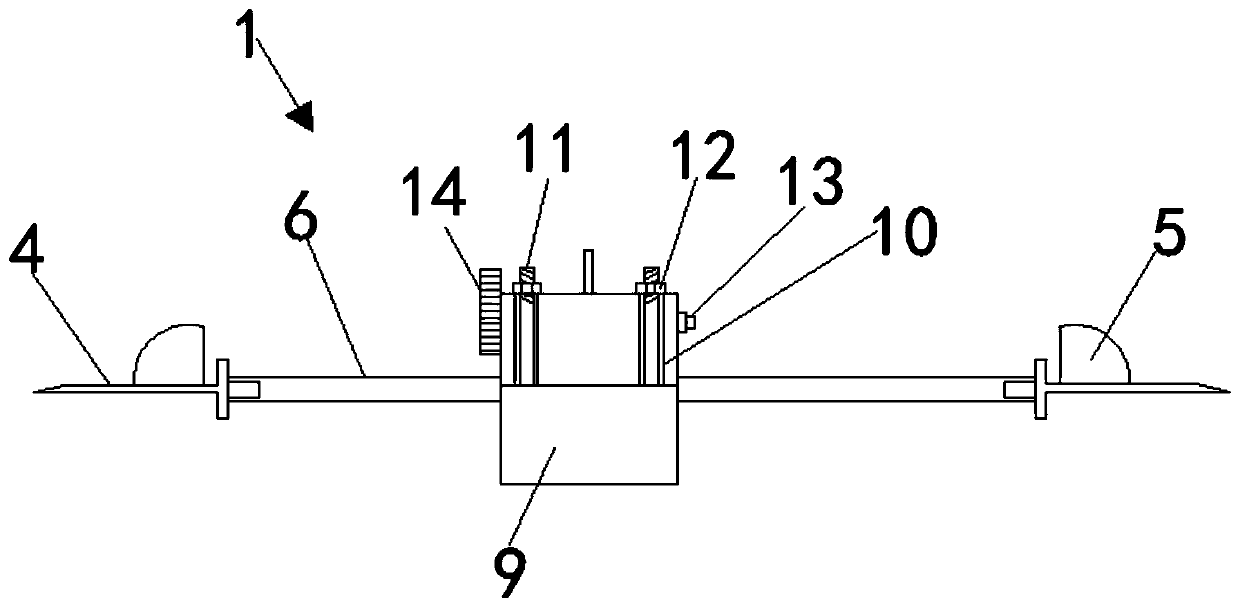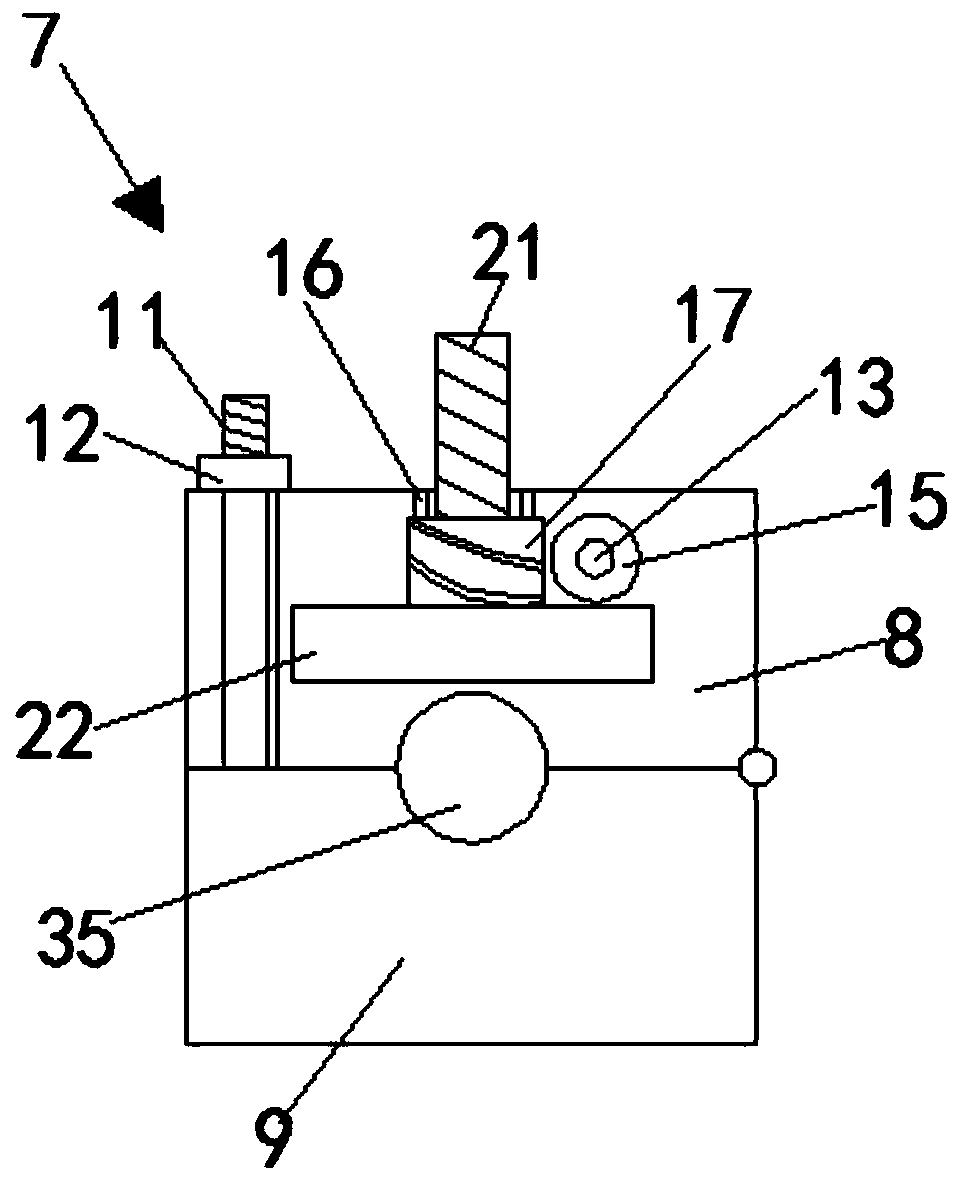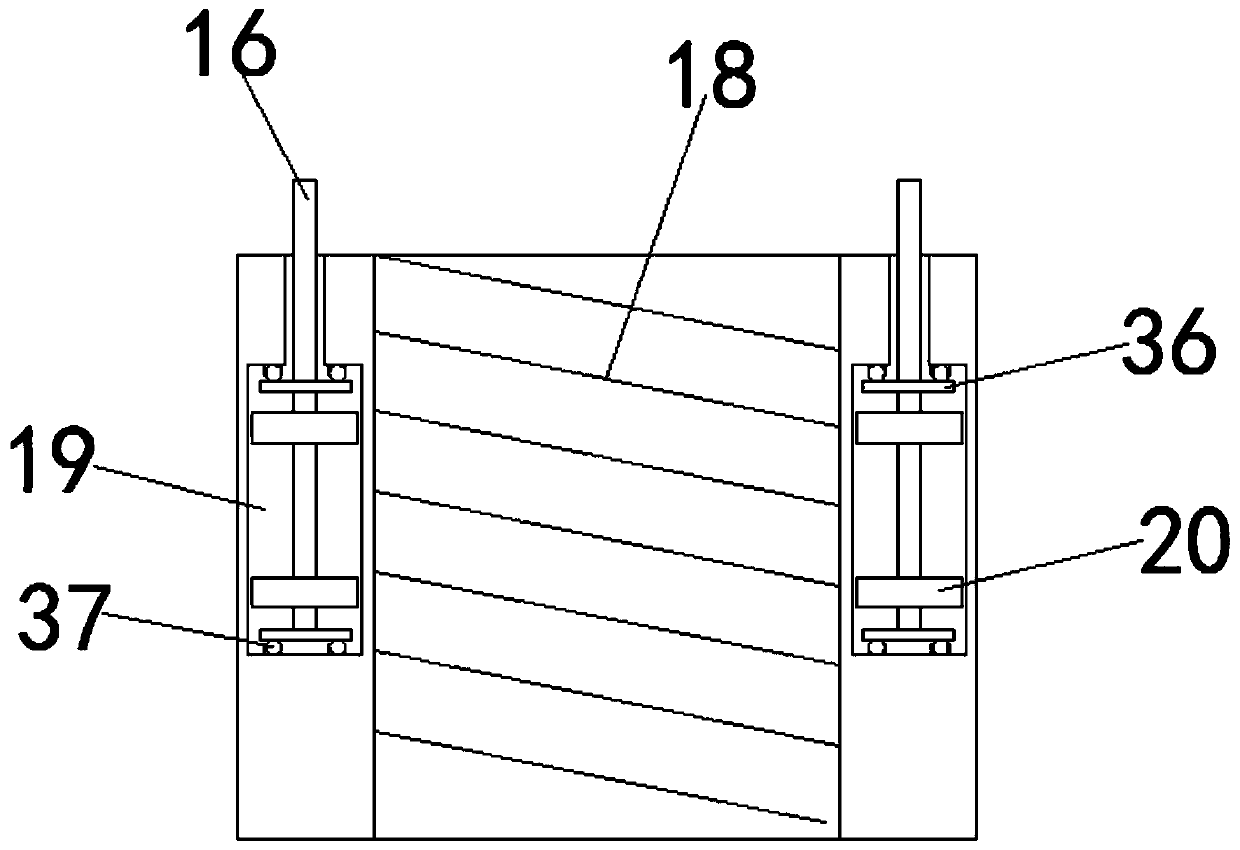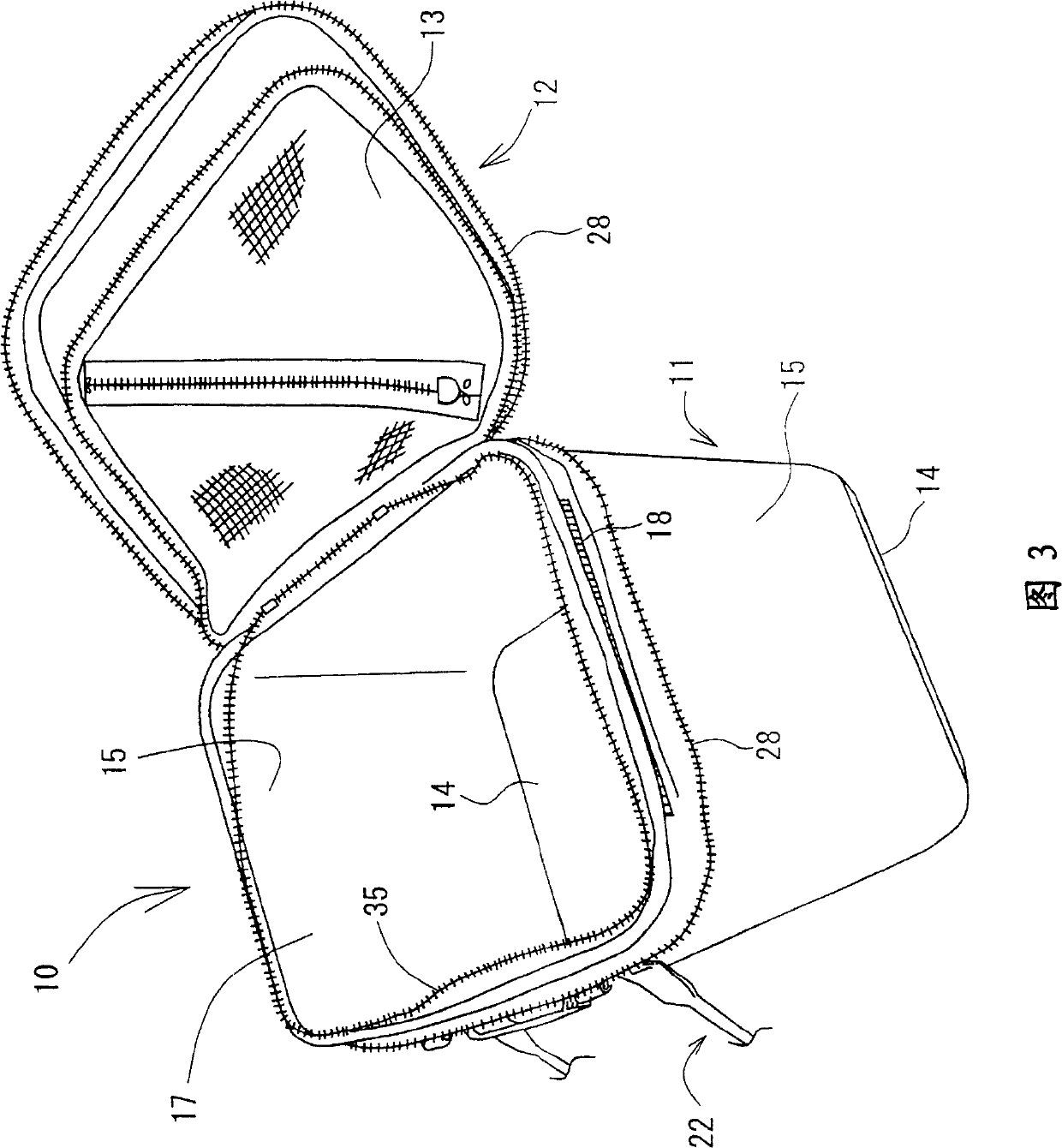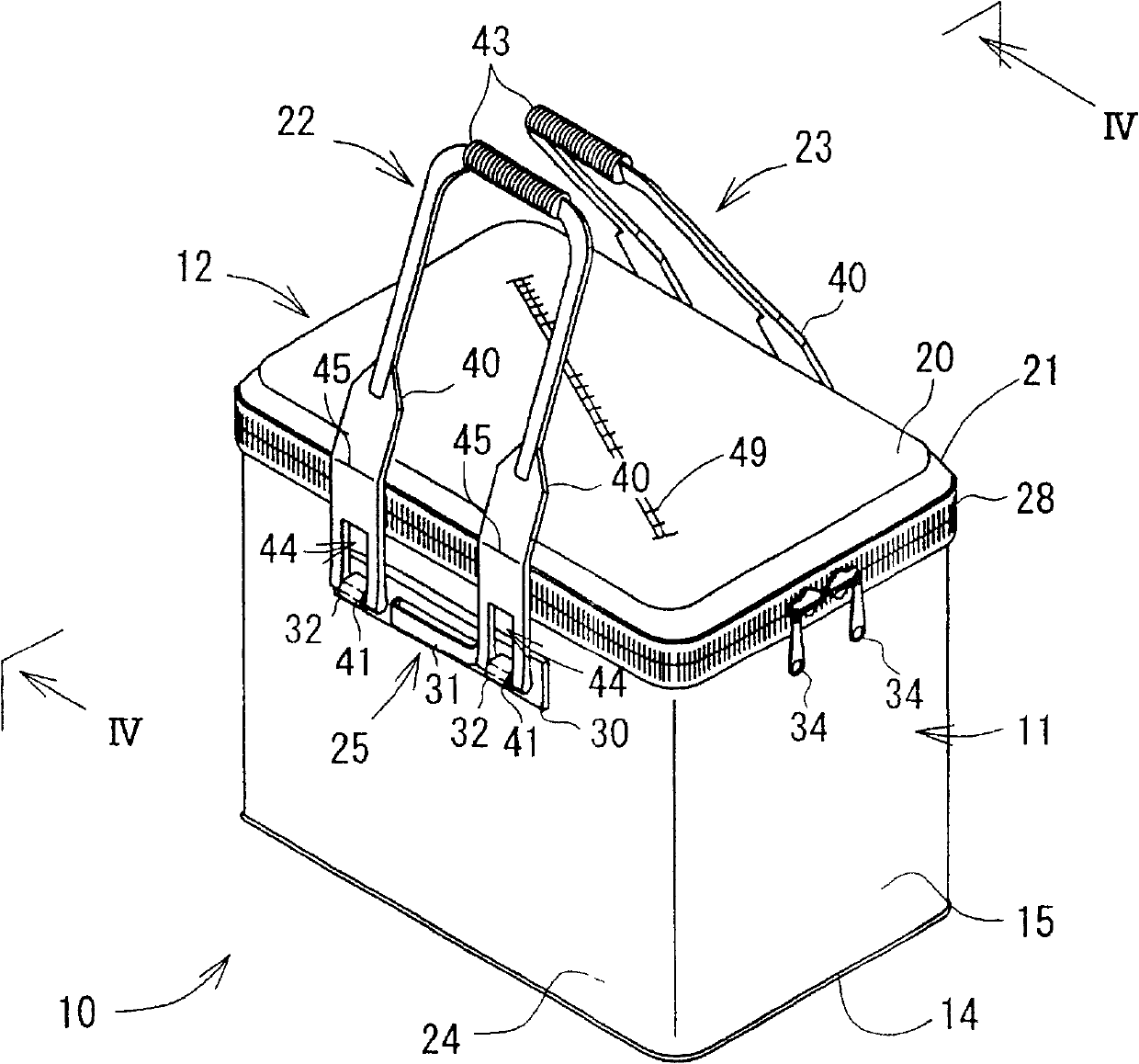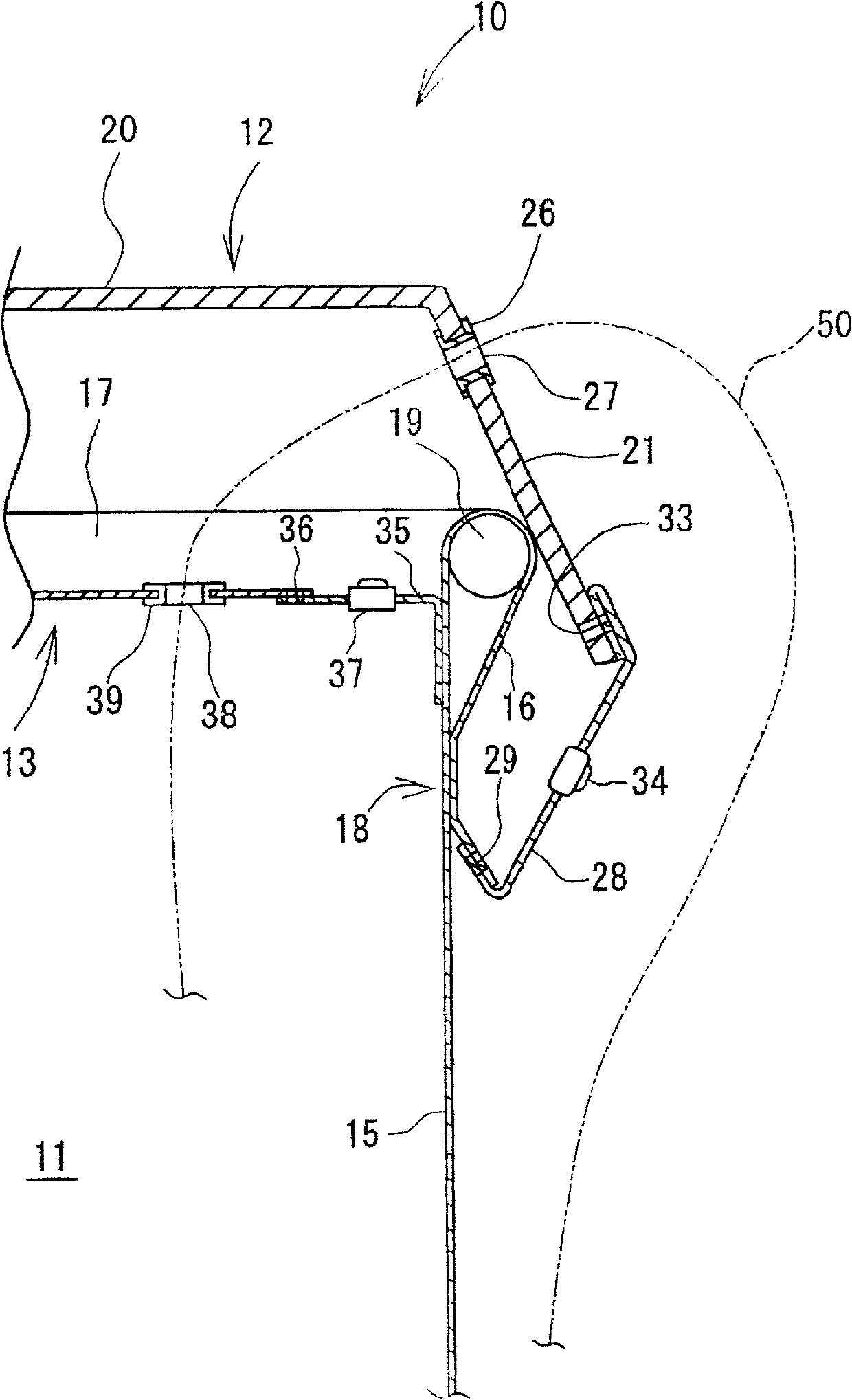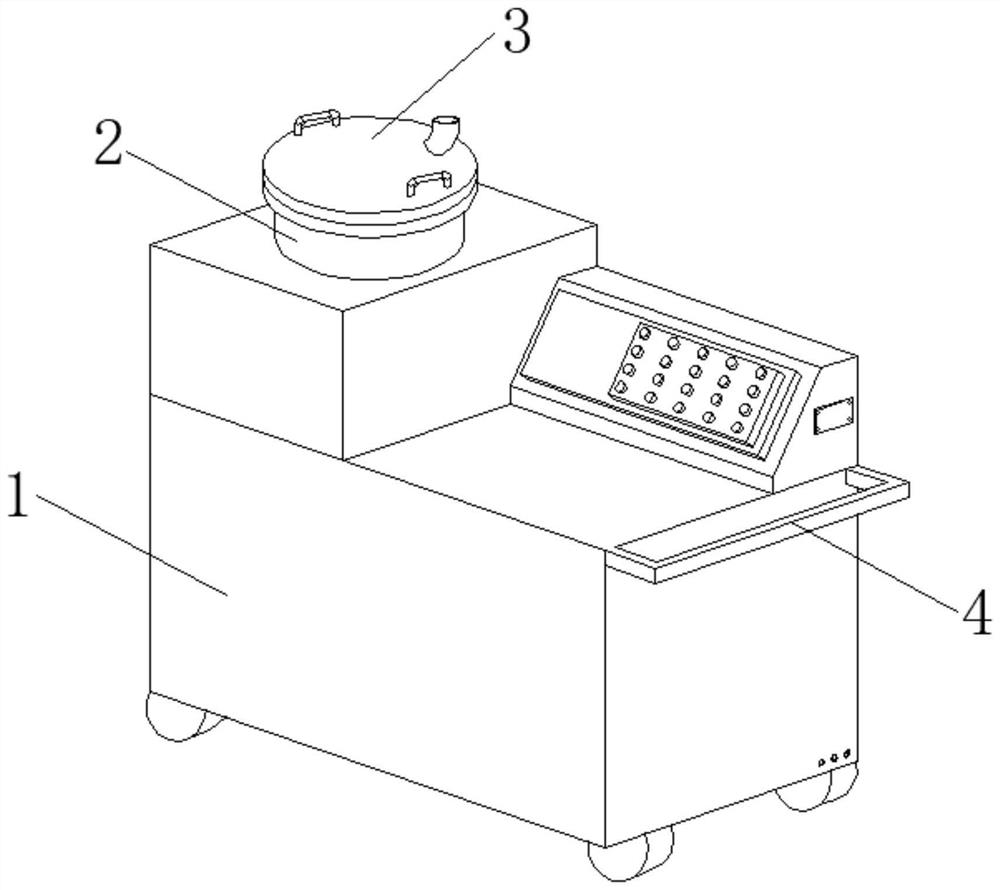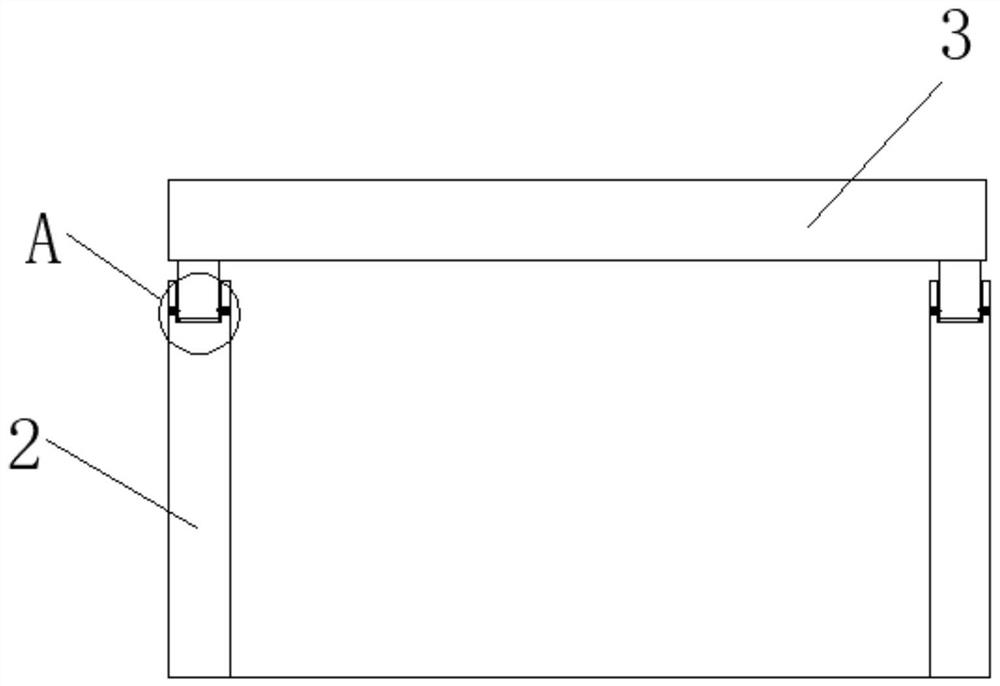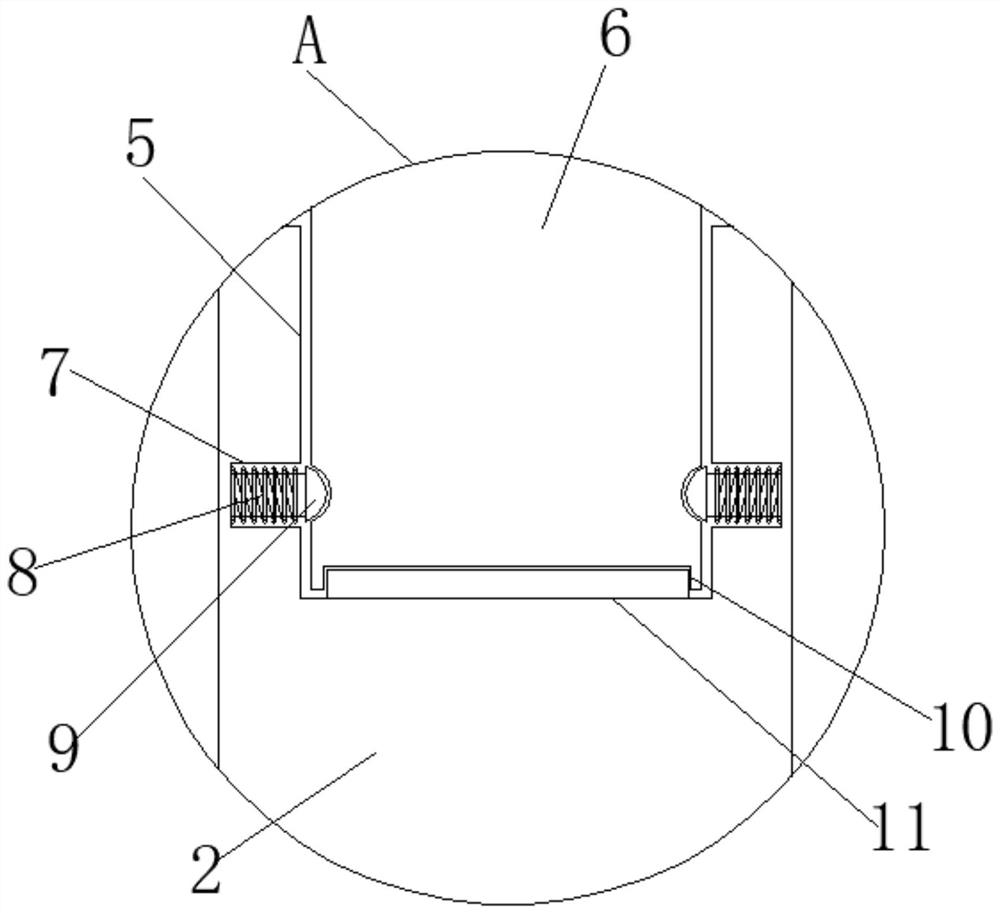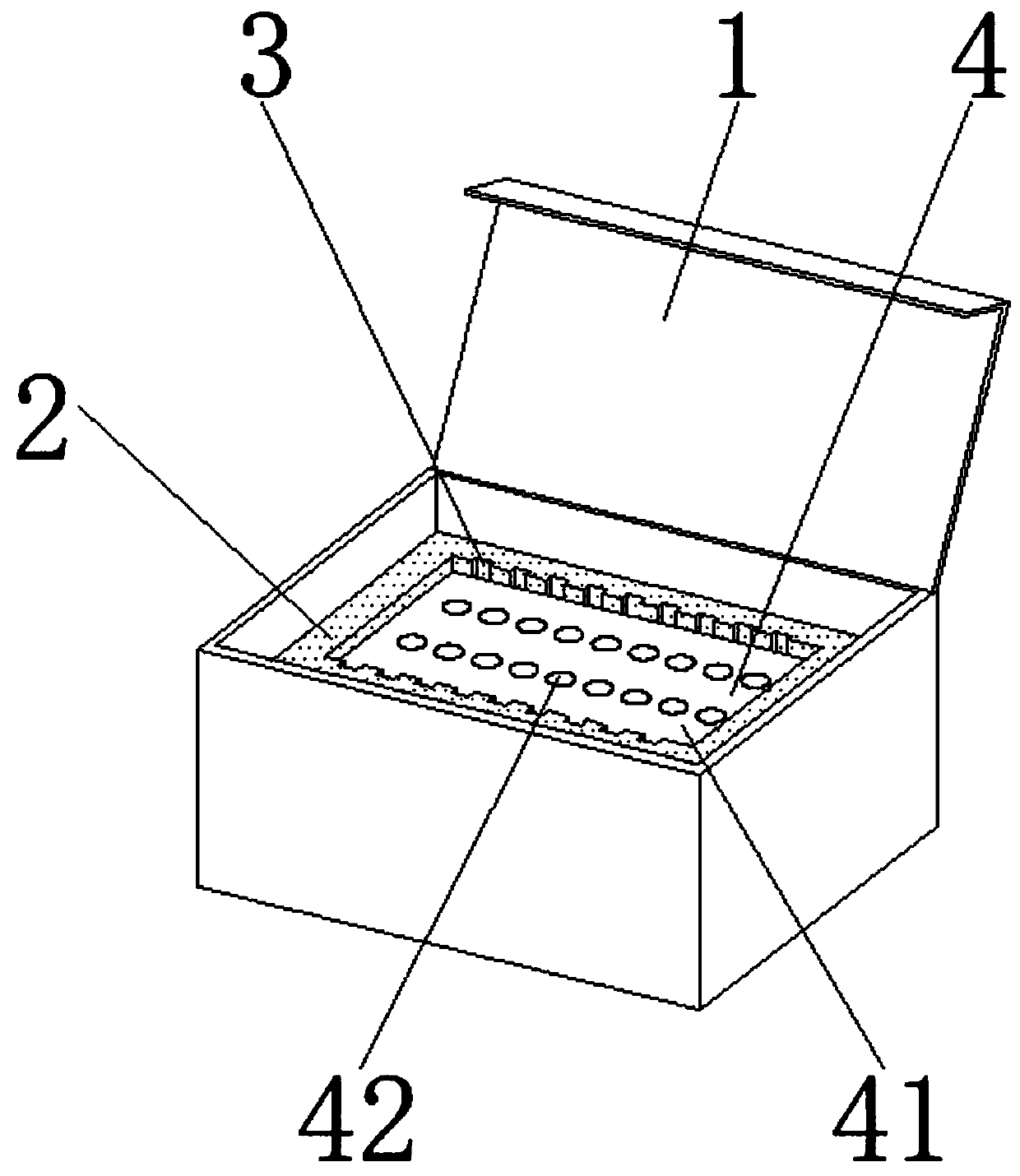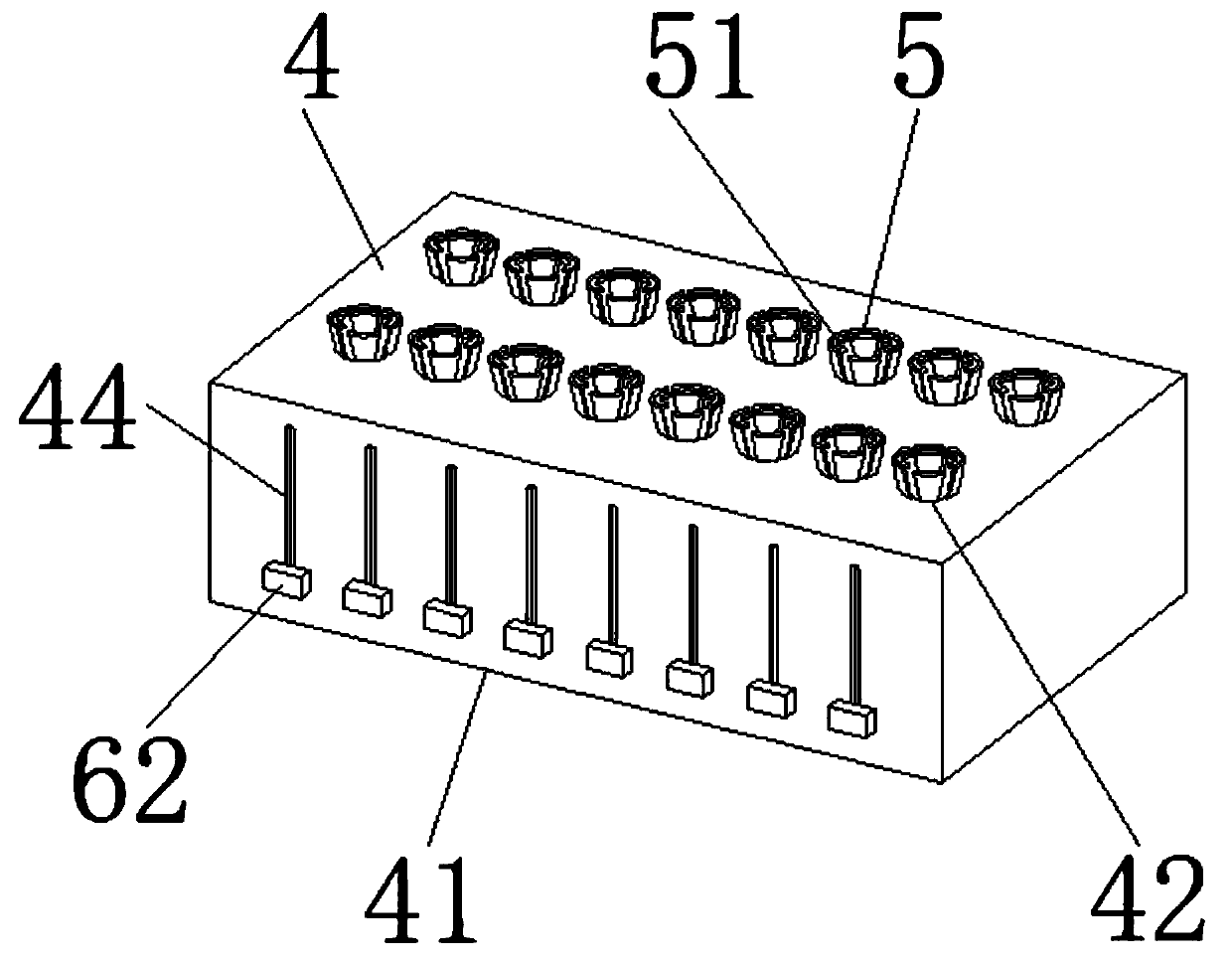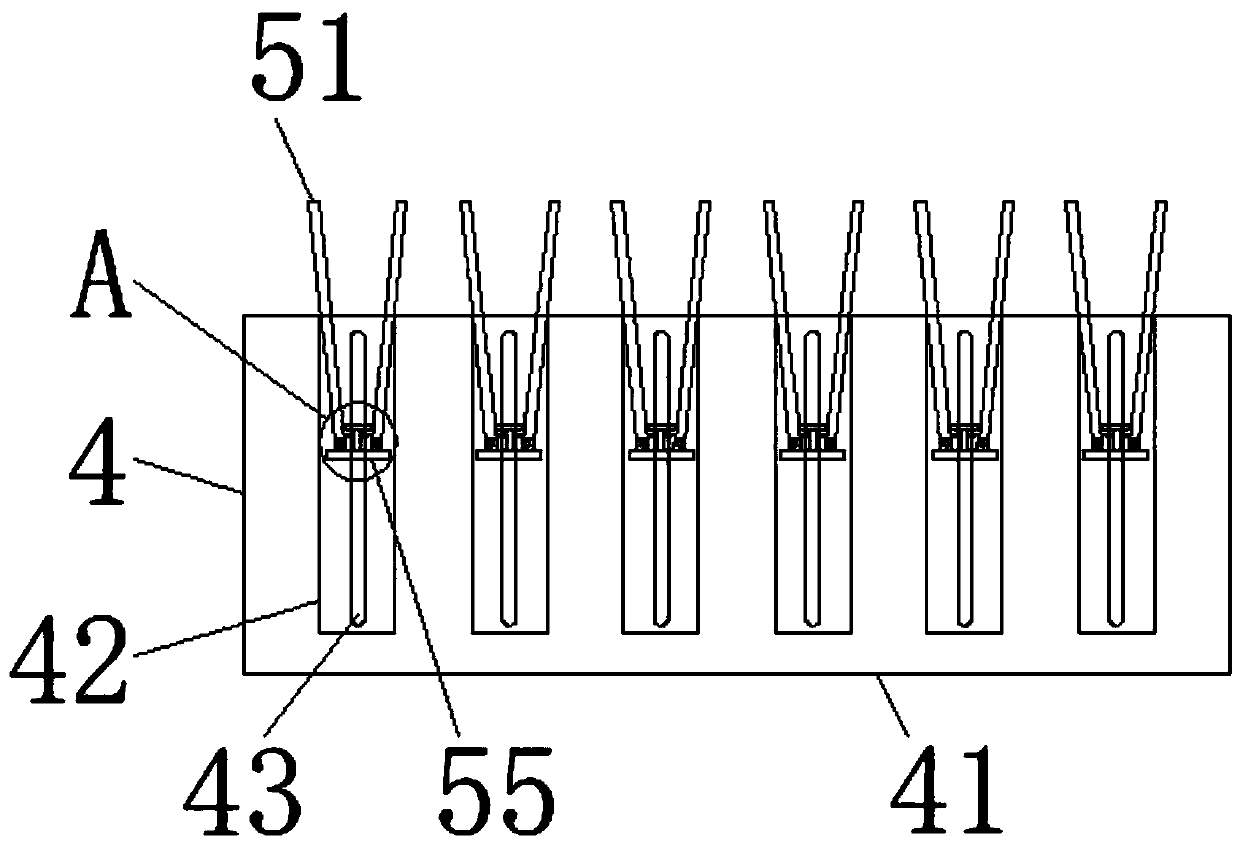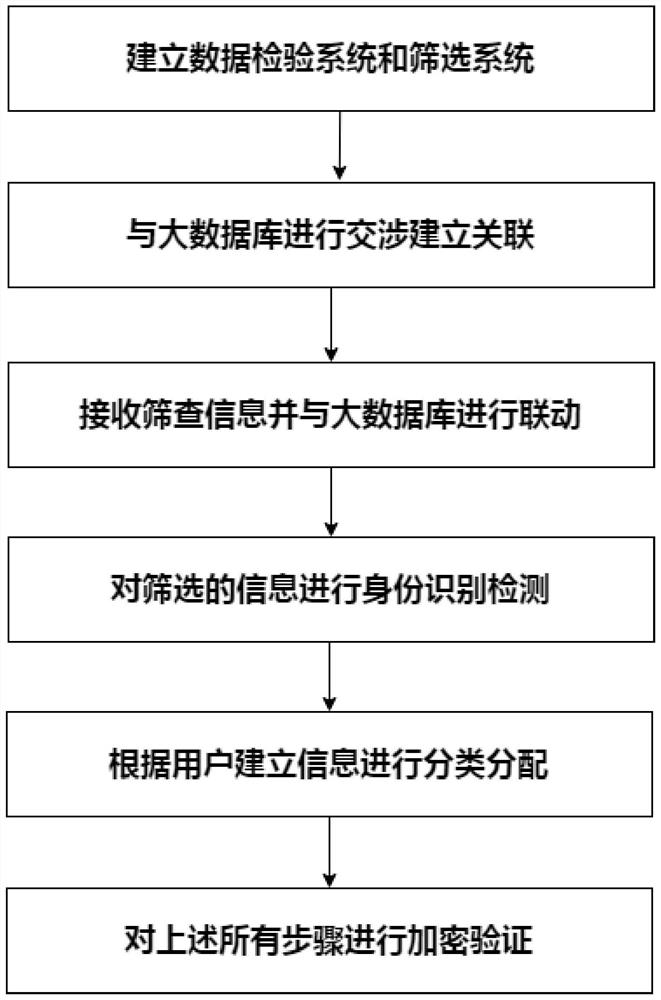Patents
Literature
Hiro is an intelligent assistant for R&D personnel, combined with Patent DNA, to facilitate innovative research.
31results about How to "Won't leak easily" patented technology
Efficacy Topic
Property
Owner
Technical Advancement
Application Domain
Technology Topic
Technology Field Word
Patent Country/Region
Patent Type
Patent Status
Application Year
Inventor
Approval method and device based on blockchain identity authentication and storage medium
InactiveCN110020526AWon't leak easilyImprove securityDigital data protectionDigital data authenticationClient-sideUser authentication
The invention discloses an approval method and device based on blockchain identity authentication and a storage medium. The method comprises the steps of obtaining a user identification code and a user information ciphertext in a client; sending the user identification code to a block chain server, so that the block chain server obtains corresponding current user information and a current user public key; receiving the current user public key returned by the block chain server, decrypting the user information ciphertext, obtaining decrypted to-be-verified user information, obtaining an approval item corresponding to the approval request when it is judged that the current user information is the same as the decrypted to-be-verified user information, and determining an approval type of theapproval item; and then determining an approver corresponding to the approval item, and inserting the encrypted approval item into an approval queue corresponding to the approval person. According tothe invention, the security of the user identity authentication process is improved, and the accuracy of the authentication result is improved.
Owner:深圳智乾区块链科技有限公司
Waste and old power lithium ion battery pack discharging device and method
ActiveCN108110361ANo pollution in the processReduce pollutionSecondary cells charging/dischargingWaste accumulators reclaimingEngineeringBattery cell
The invention provides a waste and old power lithium ion battery pack discharging device and method. The device comprises a traveling crane device, a discharging unit, a discharging pool, a liquid storage pool, a discharging liquid conveying component, a residue discharging liquid removal component and a shade drying pool, wherein a sealing cover and a discharging cage are connected to form the discharging unit. The method is based on the device; a waste and old lithium ion battery pack is put into the discharging cage of the discharging unit; a mechanical grasping hand arranged on the traveling crane device grasps the sealing cover; the discharging unit is put into the discharging pool by the mechanical grasping hand; the discharging liquid is injected into the discharging pool through the liquid storage pool; through discharging, the discharging liquid is pumped out from the discharging pool; residue liquid drips on the surface of the battery pack are blown off; the discharging unitis moved to the shade drying pool; after the shade drying, the discharging unit is moved to a battery pack delivery region for battery pack discharging. The waste and old power lithium ion battery pack discharging device and method have the obvious characteristics that the operation is simple; safety and efficiency are high; the automation degree is high; environment-friendly effects and the likeare achieved.
Owner:上海迅选智能科技有限公司
Method for preventing website login by illegal user
InactiveCN101340332AReduce lossesPrevent loginUser identity/authority verificationData switching by path configurationIp addressWorld Wide Web
The invention provides a method for preventing an illegal user from logging in a website by the user login information of a real user. In the invention, the user material and a administrative district of a user are caused to be associated, after the user login information input by the user is received, the computer IP address where the user logs in is taken out and is compared with the IP section in which the administrative district associated with the user is located, if the IP section is not in any IP section that the administrative district associated with the user belongs to, then the user is an illegal user, login can be rejected. In the invention, the IP address of the login computer is adopted as the basis of judgment, and the objective of preventing login by most of illegal users can be realized, thus avoiding that the illegal user logs in the website by using the user login information of the real user and steals the network information which can only be owned by the real user.
Owner:郑志豪
Medical archive management system
InactiveCN106372399AWon't leak easilyBorrow at any timeSpecial data processing applicationsComputer scienceManagement system
The invention discloses a medical archive management system, and is characterized in comprising medical archive storage and binding and medical archive timeliness judgment. Archives subjected to the medical archive timeliness judgment are destroyed or subjected to secrecy level screening, medical archives subjected to the secrecy level screening are classified and numbered and are stored through numbers according to different categories, timeliness judgment is carried out again according to a set storage date, and a retrieval medical achieve database is formed after the medical archives are classified and numbered. The invention designs one set of management system which can collect and integrally store medical archives. The whole system is convenient and accurate, the medical archives of different secrecy levels are stored according to categories, query and borrowing permissions of different levels are set, and the medical archives with privacy and important information can not be easily leaked.
Owner:马长松
TLV (Threshold Limit Value) based data transmission method and system thereof
InactiveCN102624741AImprove securityWon't leak easilyKey distribution for secure communicationComputer securityData transmission systems
The invention discloses a TLV (Threshold Limit Value) based data transmission method comprising the following steps of: encoding original data to be transmitted through a TLV encoding manner to generate TLV data; encrypting the TLV data to generate encrypted TLV data; and transmitting the encrypted TLV data. The invention further discloses a TLV-based data transmission system. Through a technical scheme in the invention, the transmission safety of the TLV data can be improved.
Owner:BEIJING QIHOO TECH CO LTD +1
Method for protecting personal information in mobile phone
InactiveCN104519127AProtectImprove protectionTransmissionSecurity arrangementInformation confidentialityUser needs
The invention belongs to the fields of mobile communication technology and information security and aims to provide a method for well protecting the personal information in a mobile phone. According to the technical scheme, the method includes: all or part of the information in the mobile phone is stored in a cloud, and the mobile phone does not store information or does not store complete information; when a user needs the information, the information can be directly downloaded from the cloud, wherein the storing process is an encryption uploading process, and the downloading process is a decryption downloading process. By the method mainly applicable to mobile phone information confidentiality occasions, personal information cannot leak easily even the mobile phone is lost or stolen.
Owner:TIANJIN UNIV
Preparation method of azo bond-rich covalent organic framework materials and application of azo bond-rich covalent organic framework materials in proton conduction and fuel cells
A series of trihydroxy-substituted aromatic azo compound construction units (named as Azo-R, R = NHBoc, NH2, p-pherol-NHBoc, CHO, B(OH)2, CN or CH2CN) are prepared by using a step-by-step synthesis strategy, and then are used as precursors to synthesize a series of stable, high-crystallinity and high-specific-surface-area novel covalent organic framework (COFs) materials. Characterization resultsshow that the COFs have a high specific surface area and an excellent chemical stability, and are stable in various common organic solvents (acetone, dichloromethane, DMF and the like), concentrated hydrochloric acid (12 M), concentrated alkali NaOH (12 M) and boiling water. In addition, good hydrophilicity and high water vapor adsorption capacity of the materials make the COFs become an ideal proton conducting material. After phosphoric acid is loaded, the COFs achieve ultrahigh proton conductivity, and the conductivity can reach 1.13 * 10<-1> S / cm, and can be comparable with the value (~1.1* 10<-1> S / cm) of commercial Nafion. The COFs can be easily processed to form a proton exchange membrane device and applied to hydrogen-oxygen fuel cells.
Owner:耀科新材料(苏州)有限公司
Method and system for voice communication encryption and decryption
ActiveCN105120455APrevent eavesdroppingEnsure safetySecurity arrangementComputer hardwareVoice communication
The invention provides a method for voice communication encryption and decryption, comprising the following steps: a first mobile terminal initiates a call to a second mobile terminal through a first STK menu which is provided by a first SIM card in the first mobile terminal; the first SIM card sends a pre-stored key corresponding to voice communication between the first mobile terminal and the second mobile terminal to a first communication module in the first mobile terminal, wherein the key is also pre-stored in a second SIM card in the second mobile terminal; the first communication module uses the key to encrypt a voice frame sent by the first mobile terminal to the second mobile terminal, and sends the voice frame after encryption to the second mobile terminal; a second communication module in the second mobile terminal acquires the key from the second SIM card after receiving the call from the first mobile terminal; and the second communication module uses the key to decrypt the received voice frame. Accordingly, the invention provides a system for voice communication encryption and decryption. By implementing the method and the system of the invention, the security of voice communication can be effectively improved.
Owner:PRANUS BEIJING TECH CO LTD
A computer information network engineering system
InactiveCN109740322AWon't leak easilyImprove securityParticular environment based servicesDigital data authenticationRemote controlInformation networks
The invention discloses a computer information network engineering system. The system comprises a sensor, an acquisition unit, a central processing unit, an analysis unit, a wireless signal transceiving module, a first feedback module, a power module, a monitoring module and a remote control terminal, wherein the output end of the sensor is connected with the input end of the acquisition unit, theoutput end of the acquisition unit is connected with the input end of the central processing unit, and the output end of the central processing unit is respectively connected with the input ends of the analysis unit, the wireless signal transceiving module and the monitoring module. In the computer information network engineering system, the acquisition unit can be used for acquiring informationof accessed equipment; and whether the computer is a storage device such as a USB flash drive or not can be judged after analysis of the analysis unit, then an owner can be remotely notified through amobile phone, a user can download and transmit data in the computer only after agreement of the owner, it is guaranteed that the data in the computer are not prone to being leaked, and safety is greatly enhanced.
Owner:湖北凌晖信息科技有限公司
Device for preventing dust in sweeper dust collection box from falling
PendingCN111345740AClosed tightlyPrevent secondary dropSuction filtersCarpet cleanersRockdustStructural engineering
Owner:HUNAN JUSHEN ELECTRONICS CO LTD
Pipe piece flexible production line
ActiveCN110509419AComplete supporting facilitiesSmall footprintCeramic shaping plantsProduction lineRebar
The invention relates to the technical field of prefabricated concrete lining piece pieces, in particular to a pipe piece flexible production line. The pipe piece flexible production line comprises production pouring lines, a steam curing area, static stopping areas, a die walking device and a reinforcement cage machining area. The static stopping areas and the production pouring lines are arranged on the two sides of the steam curing area from the near to the distant. The die walking device comprises rails and a carrying trolley, and the production pouring lines, the steam curing area and thestatic stopping areas communicate with one another through the rail. The carrying trolley is arranged on the rails, and the reinforcement cage machining area is overall arranged above the steam curing area and the static stopping areas on the two sides. By means of the pipe piece flexible production line, matched facilities are complete, the occupied area is smaller, the concentration degree of the production line is higher, and therefore the production technology is improved, and the production efficiency is improved.
Owner:苏州交通工程集团有限公司
Oil seal structure and oil seal method of cooling transformer
ActiveCN112185653AReduce manufacturing costImprove production efficiencyTransformers/inductances coolingTransformerPaperboard
The invention relates to an oil seal structure and an oil seal method of a cooling transformer; the structure comprises an upper cover plate, the upper cover plate is arranged in an inner cavity of anoil tank of the transformer, the long edge of the plate face of the upper cover plate is connected with one end of a long shaft side oil seal paper plate, and the other end of the long shaft side oilseal paper plate makes contact with the inner wall of the bottom of the oil tank; one end of a short shaft side oil seal paper board is connected to the wide edge of the board face of the upper coverplate, the other end of the short shaft side oil seal paper board makes contact with the inner wall of the bottom of the oil tank, and a cavity of an oil seal structure is defined by the long shaft side oil seal paper plate, the short shaft side oil seal paper plate, the upper cover plate and the inner wall of the bottom of the oil tank of the transformer. The other end of the long shaft side oilseal paper plate and the other end of the short shaft side oil seal paper plate are bent towards an inner cavity of the cavity of the oil seal structure, and the upper cover plate is connected with the inner wall of the bottom of the oil tank through a supporting piece. The invention is low in manufacturing cost, the cavity of the oil seal structure is telescopic, and it is guaranteed that the flow speed of oil entering the coil is stable.
Owner:常州西电变压器有限责任公司 +1
Fishing box
The invention provides a fishing bag which can also be used as a fish preserve and has an excellent waterproof property. This fishing bag 10 comprises a bag body 11 and an outer lid 12. An inner lid 13 is disposed in the bag body 11. When the outer lid is closed, the opening 17 of the bag body 11 and its peripheral portion are surrounded with the outer lid 12. The upper end portion 16 of a side wall portion 15 is wound and hung on a core material 19 and bent on the outside to form the bag body 11. The upper end portion 16 is welded to a prescribed position 18 of the side wall portion 15. The outer lid 12 is attached to the outermost edge portion 29 of the upper end portion 16. The inner lid 13 is sewed on the upper end portion 16 of the side wall portion 15 through a slide fastener 35. The slide fastener 35 is sewed on the side wall portion 15 above the prescribed position 18.
Owner:SHIMANO INC
Preparation of a class of azo bond-rich covalent organic frameworks and their applications in proton conduction and fuel cells
The present invention uses a step-by-step synthesis strategy to prepare a series of aromatic azo compound building blocks (named after Azo-R, R=NHBoc, NH 2 , p‑phenyl‑NHBoc, CHO, B(OH) 2 , CN, CH 2 CN, etc.), and then used them as precursors to synthesize a series of stable, highly crystalline and high specific surface novel covalent organic frameworks (COFs) materials. Through characterization, it is found that these COFs have high specific surface area and excellent chemical stability, and can be used in various common organic solvents (acetone, dichloromethane, DMF, etc.), concentrated hydrochloric acid (12M), concentrated alkali NaOH (12M), Stable in boiling water. In addition, they show good hydrophilicity and high water vapor adsorption capacity, which make this type of COFs an ideal proton-conducting material. After loading phosphoric acid, these COFs achieved ultra-high proton conductivity with a conductivity of 1.13×10 ‑ 1 S / cm, this value can be compared with the value of commercial Nafion (~1.1×10 ‑1 S / cm) comparable. These COFs can be easily fabricated into proton exchange membrane devices and applied to hydrogen-oxygen fuel cells.
Owner:耀科新材料(苏州)有限公司
A flexible production line for segments
ActiveCN110509419BComplete supporting facilitiesSmall footprintCeramic shaping plantsParking areaProcess engineering
Owner:苏州交通工程集团有限公司
An outdoor liquid storage tank
ActiveCN109160116BAvoid continuous contactWon't leak easilyLarge containersTank wagonsNitrogenLiquid storage tank
The invention discloses an outdoor liquid storage tank. The outdoor liquid storage tank is characterized in that a nitrogen pipeline 2 is arranged on the side surface of the upper portion of a tank body in a communicating mode, a nitrogen sealing valve is arranged on the nitrogen pipeline 2 and is connected to an outlet of a nitrogen tank through a pressure reducing valve, the top of the tank bodyis provided with a ventilation elbow, a one-way exhalation valve is arranged at the ventilation elbow, an oil inlet is connected with an oil pipe penetrating through a nitrogen sealing layer, the lower end of a manual oil pouring opening is connected to an oil liquid isolation area, the oil liquid isolation area penetrates through the nitrogen sealing layer to communicate to the bottom of the tank body, a liquid pressure release valve is arranged on the side wall of the bottom of the oil liquid isolation area 6, the upper portion of the oil liquid isolation area is provided with a one-way airvalve communicating with the nitrogen sealing layer, the manual oil pouring opening is covered by a sealing cover with the one-way air valve, an oil outlet is formed in the side face of the lower portion of the tank body, and a stop valve is arranged at the end portion of the oil outlet. According to the outdoor liquid storage tank, leakage can be prevented, a liquid can be cooled, normal air pressure in the tank body can be maintained, and the safety of the outdoor liquid storage tank is greatly improved.
Owner:WUHU NEW UNIVERSAL ENVIRONMENTAL SCI TECH
Method and system for voice communication encryption and decryption
ActiveCN105120455BPrevent eavesdroppingEnsure safetySecurity arrangementTelecommunicationsVoice communication
The present invention provides a method for voice communication encryption and decryption, the method comprising: a first mobile terminal initiates a call to a second mobile terminal through a first STK menu, and the STK menu is provided by a first SIM card in the first mobile terminal ; The first SIM card sends the pre-stored key corresponding to the voice communication between the first mobile terminal and the second mobile terminal to the first communication module in the first mobile terminal, and the key is also pre-stored at the second In the second SIM card in the second mobile terminal; the first communication module encrypts the voice frame sent by the first mobile terminal to the second mobile terminal with a key, and sends the encrypted voice frame to the second mobile terminal; The second communication module in the second mobile terminal obtains the key from the second SIM card after receiving the call from the first mobile terminal; the second communication module uses the key to decrypt the received voice frame. Correspondingly, the present invention also provides a voice communication encryption and decryption system. Implementing the invention can effectively improve the security of voice communication.
Owner:PRANUS BEIJING TECH CO LTD
Mode of transferring and displaying map position by using phone number as account
InactiveCN107749852APrivacy protectionWon't leakTransmissionMobile Telephone NumberInformation transmission
The invention relates to the technical field of information transmission, and discloses a system for transferring and displaying a map position by using a phone number as an account. The system comprises a key module; the output end of the key module is electrically connected with the input end of a signal emitter; the output end of the signal emitter is connected with the input end of a processorby a signal; the output end of the processor is connected with the input end of a signal receiver by a signal; the output end of the signal receiver is electrically connected with the input end of adisplay module; and the display module is a mobile phone display screen. According to the mode of transferring and displaying the map position by using the phone number as the account. A certain geographic position is represented in a phone number combined mode; by sending phone numbers, geographic position information which users want to send can be transmitted out; and by carrying out encryptionon geographic positions of the users, privacy of the users can be protected, and the position information of the users cannot be easily leaked, so that the system is safer to use.
Owner:何治通
Magnesium rod assembly, water consumption equipment and water heater
PendingCN114353338AExtended service lifeFacilitate unified observationMechanical apparatusWater heatersWater useThermodynamics
The embodiment of the invention provides a magnesium rod assembly, water using equipment and a water heater, the magnesium rod assembly comprises a magnesium rod and a scale inhibition part, and the scale inhibition part comprises a shell and a scale inhibitor; the shell is arranged at one end of the magnesium rod, the scale inhibitor is arranged in the shell, a plurality of water passing holes are formed in the shell, and the interior and the exterior of the shell are communicated through the water passing holes. Due to the fact that the magnesium rod assembly is provided with the scale inhibition part and the magnesium rod which are connected with each other, unified observation of consumption states of the scale inhibition part and the magnesium rod can be conveniently achieved, and the scale inhibition part and the magnesium rod can be conveniently and independently replaced or replaced in a unified mode. Moreover, the scale inhibitor is arranged in the shell, and the shell is provided with the plurality of water passing holes, so that an external water source is fully contacted and reacted with the scale inhibitor through the water passing holes, meanwhile, the scale inhibitor can be ensured not to be easily leaked from the water passing holes, and the service life of the magnesium rod assembly is prolonged.
Owner:WUHU MIDEA KITCHEN & BATH APPLIANCES MFG CO LTD +1
Vehicle LED lamp based on 3D printing and liquid cooling system thereof
ActiveCN112628687AAdd spoilersIncrease disturbanceVehicle headlampsElectric circuit arrangementsPorous mediumLiquid cooling system
The invention discloses a vehicle LED lamp based on 3D printing and a liquid cooling system thereof used for the vehicle LED lamp, relates to the field of vehicle LED illumination, and aims to provide a vehicle LED lamp based on 3D printing and a liquid cooling system thereof. A radiator comprises a shell, a liquid injection port and a liquid outlet are formed in the shell, a middle jet plate is arranged in the shell and divides an inner cavity of the shell into a micro-jet high-pressure liquid inlet area and a heat exchange area, the heat exchange area comprises a micro-jet cooling cavity and a porous medium heat dissipation channel, the micro-jet high-pressure liquid inlet area and the porous medium heat dissipation channel are both communicated with the liquid injection port, the micro-jet high-pressure liquid inlet area is communicated with the micro-jet cooling cavity through micro-jet small holes in the middle jet plate, and the micro-jet cooling cavity, the porous medium heat dissipation channel and the liquid outlet are sequentially communicated. According to the radiator, the radiating efficiency of the vehicle LED lamp is remarkably improved, and the service life of a headlamp of a vehicle body is prolonged.
Owner:UNIV OF ELECTRONICS SCI & TECH OF CHINA
Gene detection, verification and extraction system applicable to teaching and gene screening method for rare diseases
ActiveCN110672825AControl distanceGuaranteed comfortSensorsBiological testingBiologyMechanical engineering
The invention discloses a gene detection, verification and extraction system applicable to teaching and a gene screening method for rare diseases. The system comprises a puncture drainage mechanism, ablood collection mechanism and an upper layer liquid collection mechanism, wherein the puncture drainage mechanism comprises a first puncture needle and a second puncture needle, the first puncture needle and the second puncture needle are connected through a first connecting hose, a flow blocking mechanism is arranged on the first connecting hose in a sleeving manner, the flow blocking mechanismcomprises an upper cover and a lower cover, the upper cover is connected with one end of the lower cover through a movable shaft, a first limiting groove is formed in one side of the upper cover, thecross section of the first limiting groove is a major arc, a limiting column is fixedly arranged on the lower cover, the limiting column is matched with the first limiting groove, and the limiting column is in contact with the upper cover through a limiting nut. The beneficial effects of the gene detection, verification and extraction system applicable to teaching and the gene screening method for rare diseases are as follows: the distance between a E-shaped baffle plate and a vertical baffle plate can be accurately controlled, so that the liquid outlet speed is accurately controlled, and thecomfort of related personnel is ensured.
Owner:PEKING UNION MEDICAL COLLEGE HOSPITAL CHINESE ACAD OF MEDICAL SCI
A 3D printing-based automotive LED lamp and its liquid cooling system
ActiveCN112628687BAdd spoilersIncrease disturbanceVehicle headlampsElectric circuit arrangementsLiquid cooling systemLED lamp
The invention discloses a 3D printing-based automotive LED lamp and its liquid cooling system, which are used for automotive LED lamps and relate to the field of automotive LED lighting. The purpose is to provide a 3D printing-based automotive LED lamp and its liquid cooling system. liquid cooling system. The radiator includes a shell, which is provided with a liquid injection port and a liquid outlet, and an intermediate jet plate is arranged in the shell, and the intermediate jet plate divides the inner cavity of the shell into a micro-spray high-pressure liquid inlet area and a heat exchange area. The area includes the micro-spray cooling cavity and the porous medium heat dissipation channel. The micro-spray high-pressure liquid inlet area and the porous medium heat dissipation channel are all connected to the liquid injection port. The cavity is connected, and the micro-spray cooling cavity, the porous medium heat dissipation channel, and the liquid outlet are connected in sequence. The radiator significantly improves the heat dissipation efficiency of the LED lamp for the vehicle, and improves the service life of the headlight of the vehicle body.
Owner:UNIV OF ELECTRONICS SCI & TECH OF CHINA
Fishing box
The invention provides a fishing bag which can also be used as a fish preserve and has an excellent waterproof property. This fishing bag 10 comprises a bag body 11 and an outer lid 12. An inner lid 13 is disposed in the bag body 11. When the outer lid is closed, the opening 17 of the bag body 11 and its peripheral portion are surrounded with the outer lid 12. The upper end portion 16 of a side wall portion 15 is wound and hung on a core material 19 and bent on the outside to form the bag body 11. The upper end portion 16 is welded to a prescribed position 18 of the side wall portion 15. The outer lid 12 is attached to the outermost edge portion 29 of the upper end portion 16. The inner lid 13 is sewed on the upper end portion 16 of the side wall portion 15 through a slide fastener 35. The slide fastener 35 is sewed on the side wall portion 15 above the prescribed position 18.
Owner:SHIMANO INC
A genetic detection verification extraction system that can be applied in teaching and a genetic screening method for rare diseases
ActiveCN110672825BControl distanceGuaranteed comfortSensorsBiological testingBlood collectionDisease
The invention discloses a gene detection verification extraction system applicable in teaching and a gene screening method for rare diseases, including a puncture and drainage mechanism, a blood collection mechanism and a supernatant fluid collection mechanism, and the puncture and drainage mechanism includes a first puncture needle and the second puncture needle, the first puncture needle and the second puncture needle are connected through a first connecting hose, and a flow blocking mechanism is sleeved on the first connecting hose, and the flow blocking mechanism It includes an upper cover and a lower cover, one end of the upper cover and the lower cover is connected by a movable shaft, and a first limiting groove is provided on one side of the upper cover, and the cross section of the first limiting groove is a curved arc , the lower cover is fixed with a limit column, the limit column is adapted to the first limit groove, and the limit post is in contact with the upper cover through a limit nut. The beneficial effects of the present invention are: the distance between the E-shaped baffle plate and the vertical baffle plate can be accurately controlled, so that the speed of liquid discharge can be accurately controlled, and the comfort of relevant personnel can be ensured.
Owner:PEKING UNION MEDICAL COLLEGE HOSPITAL CHINESE ACAD OF MEDICAL SCI
Mixing device for automatic powder batching system
PendingCN112263923AEasy to installWon't shake easilyTransportation and packagingMixer accessoriesStructural engineeringMechanical engineering
The invention discloses a mixing device for an automatic powder batching system. The mixing device comprises a mixing device main body, a feeding pipe, a closing cover, a handle, a limiting groove, alimiting bulge, a spring groove, a limiting spring, a limiting head, a groove, a rubber pad A, a fixing groove, a rubber pad B, a mounting groove, a mounting block, a rotating column and a fixing bolt, the feeding pipe is mounted at the top of the mixing device main body, the closing cover is rotatably mounted at the top of the feeding pipe, a handle is arranged on the side edge of the mixing device main body, and the limiting groove is formed in the top end surface of the feeding pipe; the purpose of conveniently sealing and covering the closing cover is achieved through the designed limitingbulge and limiting groove, meanwhile, the effect of conveniently and rapidly covering the closing cover for shock absorption is achieved through the designed rubber pad A and limiting spring, and extrusion damage of the closing cover to the feeding pipe is reduced; and meanwhile, the closing cover is not prone to shaking or opening when the closing cover is closed, and powder is not prone to leaking.
Owner:CHANGZHOU AOEN MEASURING EQUIP
Oil seal structure and oil seal method for cooling transformer
ActiveCN112185653BReduce manufacturing costImprove production efficiencyTransformers/inductances coolingCardboardThermodynamics
The invention discloses an oil seal structure and an oil seal method for a cooling transformer, comprising an upper cover plate, the upper cover plate is arranged in the inner cavity of an oil tank of a transformer, and the long side of the upper cover plate is connected with a long axis side oil seal One end of the cardboard, the other end of the oil seal cardboard on the long axis side is in contact with the bottom inner wall of the fuel tank, one end of the oil seal cardboard on the short axis side is connected to the broad side of the upper cover plate, and the other end of the oil seal cardboard on the short axis side One end is in contact with the bottom inner wall of the oil tank, the oil seal cardboard on the long axis side, the oil seal cardboard on the short axis side, the upper cover plate and the inner wall at the bottom of the oil tank of the transformer enclose the cavity of the synthetic oil seal structure, the other end of the oil seal cardboard on the long axis side and The other end of the oil seal cardboard on the side of the short axis is bent toward the cavity inner cavity of the oil seal structure, and the upper cover plate and the inner wall of the bottom of the oil tank are connected by a support member. The invention has low manufacturing cost, and the cavity of the oil seal structure has scalability, which ensures a stable flow rate of oil entering the coil.
Owner:常州西电变压器有限责任公司 +1
Discharging device and method for waste power lithium-ion battery pack
ActiveCN108110361BNo pollution in the processReduce pollutionSecondary cells charging/dischargingWaste accumulators reclaimingEngineeringBattery pack
The invention provides a waste and old power lithium ion battery pack discharging device and method. The device comprises a traveling crane device, a discharging unit, a discharging pool, a liquid storage pool, a discharging liquid conveying component, a residue discharging liquid removal component and a shade drying pool, wherein a sealing cover and a discharging cage are connected to form the discharging unit. The method is based on the device; a waste and old lithium ion battery pack is put into the discharging cage of the discharging unit; a mechanical grasping hand arranged on the traveling crane device grasps the sealing cover; the discharging unit is put into the discharging pool by the mechanical grasping hand; the discharging liquid is injected into the discharging pool through the liquid storage pool; through discharging, the discharging liquid is pumped out from the discharging pool; residue liquid drips on the surface of the battery pack are blown off; the discharging unitis moved to the shade drying pool; after the shade drying, the discharging unit is moved to a battery pack delivery region for battery pack discharging. The waste and old power lithium ion battery pack discharging device and method have the obvious characteristics that the operation is simple; safety and efficiency are high; the automation degree is high; environment-friendly effects and the likeare achieved.
Owner:上海迅选智能科技有限公司
A medical records management system
InactiveCN106372399BWon't leak easilyBorrow at any timePatient-specific dataComputer scienceManagement system
The invention discloses a medical archive management system, and is characterized in comprising medical archive storage and binding and medical archive timeliness judgment. Archives subjected to the medical archive timeliness judgment are destroyed or subjected to secrecy level screening, medical archives subjected to the secrecy level screening are classified and numbered and are stored through numbers according to different categories, timeliness judgment is carried out again according to a set storage date, and a retrieval medical achieve database is formed after the medical archives are classified and numbered. The invention designs one set of management system which can collect and integrally store medical archives. The whole system is convenient and accurate, the medical archives of different secrecy levels are stored according to categories, query and borrowing permissions of different levels are set, and the medical archives with privacy and important information can not be easily leaked.
Owner:马长松
Storage and transportation device for gene detection kit raw material
InactiveCN111252381ADoes not affect placementShock-absorbing and stable spaceContainers to prevent mechanical damageRigid containersEngineeringMechanical engineering
The invention relates to the field of equipment related a gene detection kit, and in particular to a storage and transportation device for a gene detection kit raw material. The storage and transportation device comprises a transportation box, a shock-absorbing sponge is installed in the transportation box, a sawtooth groove is formed in the inner wall of the shock-absorbing sponge, a storage mechanism is placed in the shock-absorbing sponge, a clamping mechanism is inserted into the storage mechanism, a pushing mechanism is installed below the clamping mechanism, and the pushing mechanism penetrates at the lower end in the storage mechanism. According to the invention, the device is equipped with the shock-absorbing sponge in the transportation box, and the sawtooth groove is formed in the shock-absorbing sponge for the pushing block, so that each pushing block can be wrapped without affecting the placement of the storage box, the storage box can have a shock-absorbing and stable space in the transportation box, the internal raw materials is safer, not leaks easily or is not damaged during transportation.
Owner:黄焱秋
Data processing method for screening corresponding users based on big data
InactiveCN112860754AWon't leak easilyImproved privacyDigital data information retrievalDigital data protectionEngineeringData error
The invention discloses a data processing method for screening corresponding users based on big data, and the processing method specifically comprises the following steps: S1, building a related data inspection system and a screening system in a network base station server, carrying out the testing and inspection of the built data inspection system and the screening system, detecting system vulnerabilities and error logs to avoid theconditions of detection errors and data errors. and the big data processing method is installed and placed in a server unit where a big data network is stored, and the big data processing method relates to the technical field of big data processing. According to the data processing method for screening the corresponding user based on the big data, the big database can retrieve the data more conveniently according to the data instruction and the entry provided by the user, the retrieval speed is higher, the data cannot be leaked easily in subsequent use, the data becomes safer, and in this way, the use privacy of people can be greatly improved, the retrieval time can be greatly shortened, and people can use the method conveniently.
Owner:恒基文化信息科技(深圳)有限公司
Features
- R&D
- Intellectual Property
- Life Sciences
- Materials
- Tech Scout
Why Patsnap Eureka
- Unparalleled Data Quality
- Higher Quality Content
- 60% Fewer Hallucinations
Social media
Patsnap Eureka Blog
Learn More Browse by: Latest US Patents, China's latest patents, Technical Efficacy Thesaurus, Application Domain, Technology Topic, Popular Technical Reports.
© 2025 PatSnap. All rights reserved.Legal|Privacy policy|Modern Slavery Act Transparency Statement|Sitemap|About US| Contact US: help@patsnap.com
